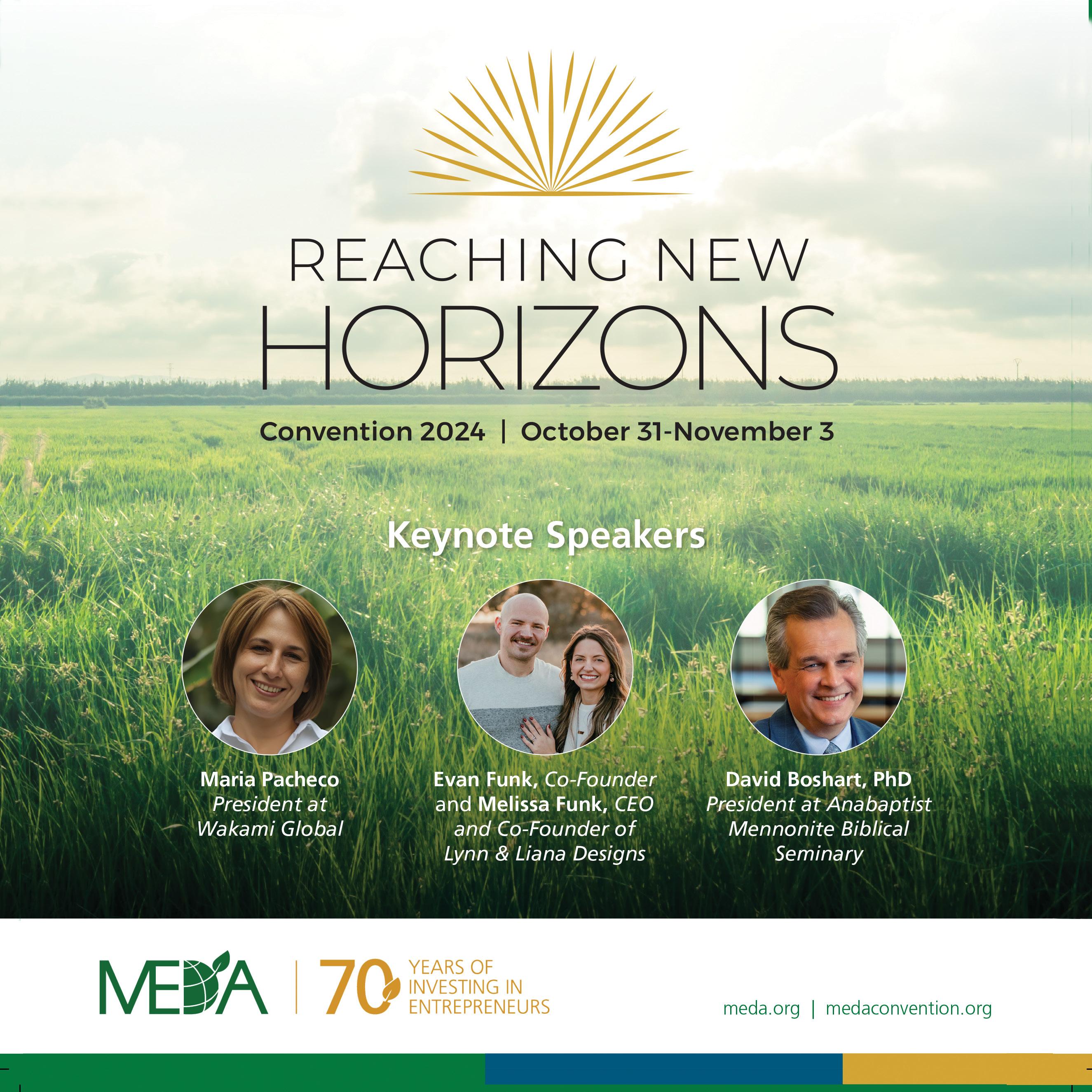For a better future
Guatemala project empowers rural women

Safer milk for East Africa
Reflections of a Pennsylvania serial entrepreneur
Farmers talk about climate change
Looking back on when MEDA became a non-profit

Guatemala project empowers rural women

Safer milk for East Africa
Reflections of a Pennsylvania serial entrepreneur
Farmers talk about climate change
Looking back on when MEDA became a non-profit
Entrepreneurs have a much higher risk tolerance than the average person.
Creating something new to solve an unmet market need or equipping others toward greater success in their livelihoods often involves an extraordinary commitment of time and money without guarantees of success.
Farmers plant crops and raise livestock each year without knowing if the weather will provide a tailwind, headwinds, or destructive setbacks to their enterprise. On page 11, you can read about a conversation between an Ontario dairy farmer and a MEDA staffer from Ghana about the effect a changing climate is having on how they and their peers go about growing food.
The university students who created Safi (see story, page 6) have developed a system that could dramatically reduce the incidence of milk-borne illnesses in East Africa by making pasteurization affordable for small-scale herders and farmers. To make this happen, three of them are committed to moving to the region (possibly Rwanda or Uganda) this summer and living there for several years. Good on them.
MEDA has been committed to taking risks alongside entrepreneurs in the Global South for seven decades and counting. Our cover story in this issue (see pp. 14-16) is a photo essay about the Women’s Empowerment 4 Central America (Guatemala), or WE4CA, project.
Wakami Global, MEDA’s lead partner in this five-year project,

takes considerable risks working with marginalized women in rural Guatemala.
Wakami’s work is “really going back to basics to form value chains that generate local sources of food, but also that are connected to national and global markets,” says Maria Pacheco, the organization’s co-founder and CEO.
Wakami also does groundbreaking work in raising children’s educational levels. Average school assistance in Guatemala is about 4.5 years, so after the fourth grade, “you’re done with school,” Pacheco said.
Girls often only get to the end of the second or third grade. “So how can you raise a family [without education] when I think it’s about 60 percent [of people living in] poverty in the country?”
Children involved with Wakami have 140 percent higher levels of education than the national average in Guatemala.
Many of the women Wakami works with have difficult stories of living through a war and losing children. “You carry that around,” she said.
“We have many challenges; that’s why dreams are so important.”
Clients tell her that “the healing process we’ve been through … couldn’t be possible without MEDA.”
You can learn more about Maria Pacheco’s story and her 20-year journey with Wakami at MEDA’s annual convention in Atlanta this fall.
Pacheco will be the opening keynote speaker on Thursday, October 31. Registration opens in the summer. .
Would you like to comment on anything in this magazine, or on any other matters relating to business and faith? Send your thoughts to mstrathdee@meda.org
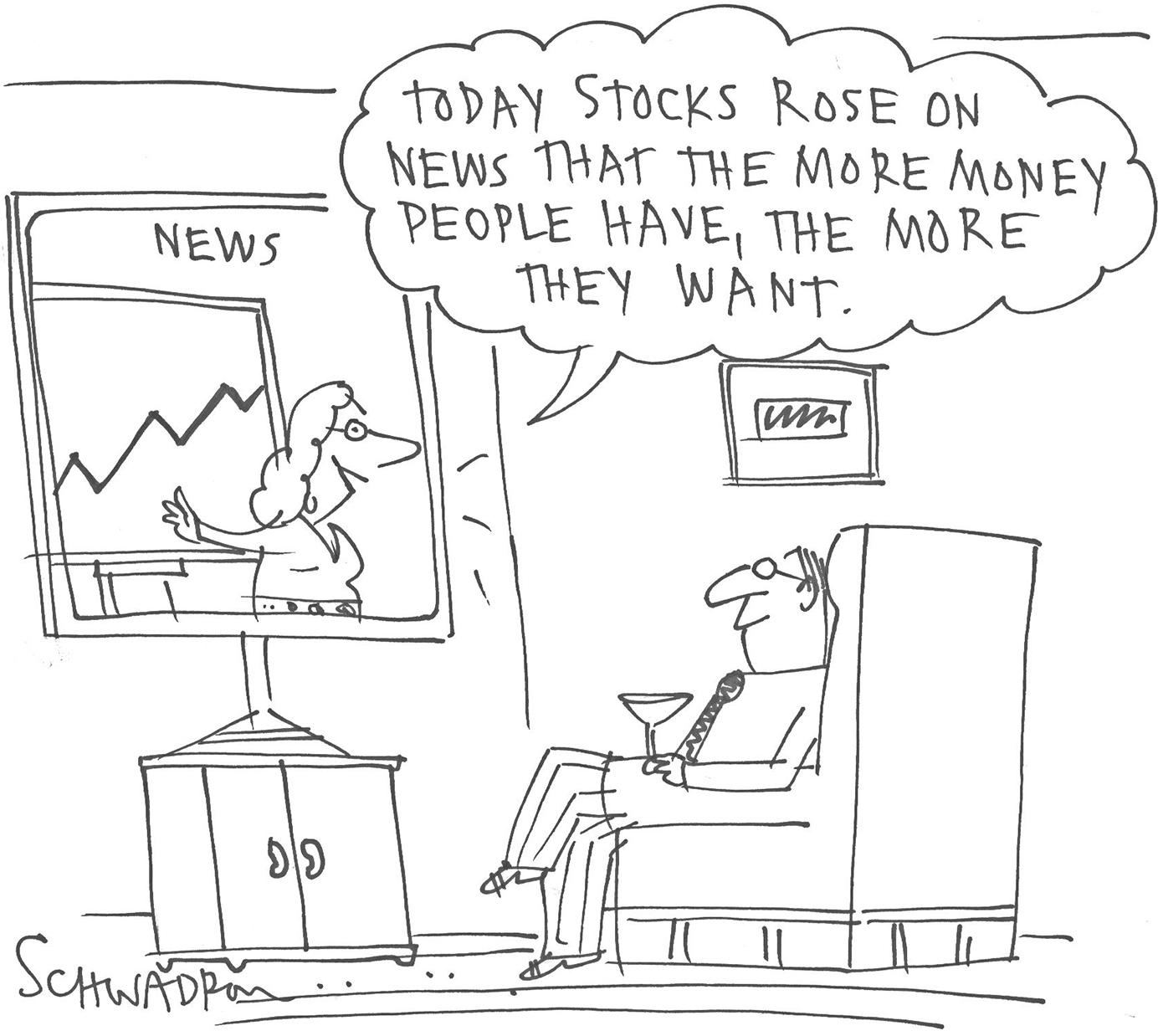

A MEDA staffer from Ghana and an Ontario dairy farmer discuss how changing weather affects agriculture in their respective countries.
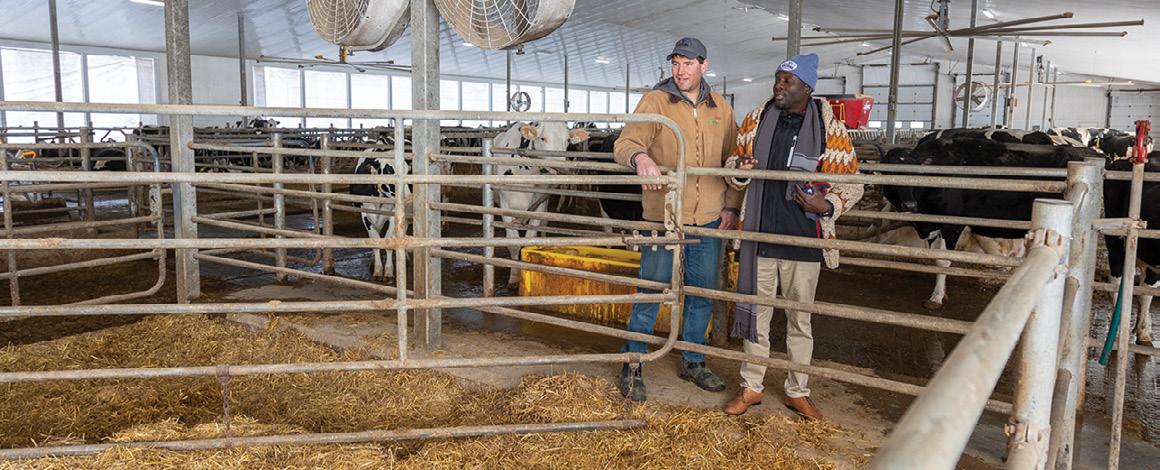
When MEDA outgrew its original structure as an investment club
In 1973, MEDA decided to apply for not-for-profit status in the US in order to extend its reach.
Safi creates a system to make pasteurization affordable for small-scale African farmers. 18
Five generations of Clemmers ran a mill in Souderton, Pennsylvania, and worked closely with their local church. Nathan Clemmer took another path, following his father into a different business. But he still relies on his faith as a guide for how to do business. Shorter
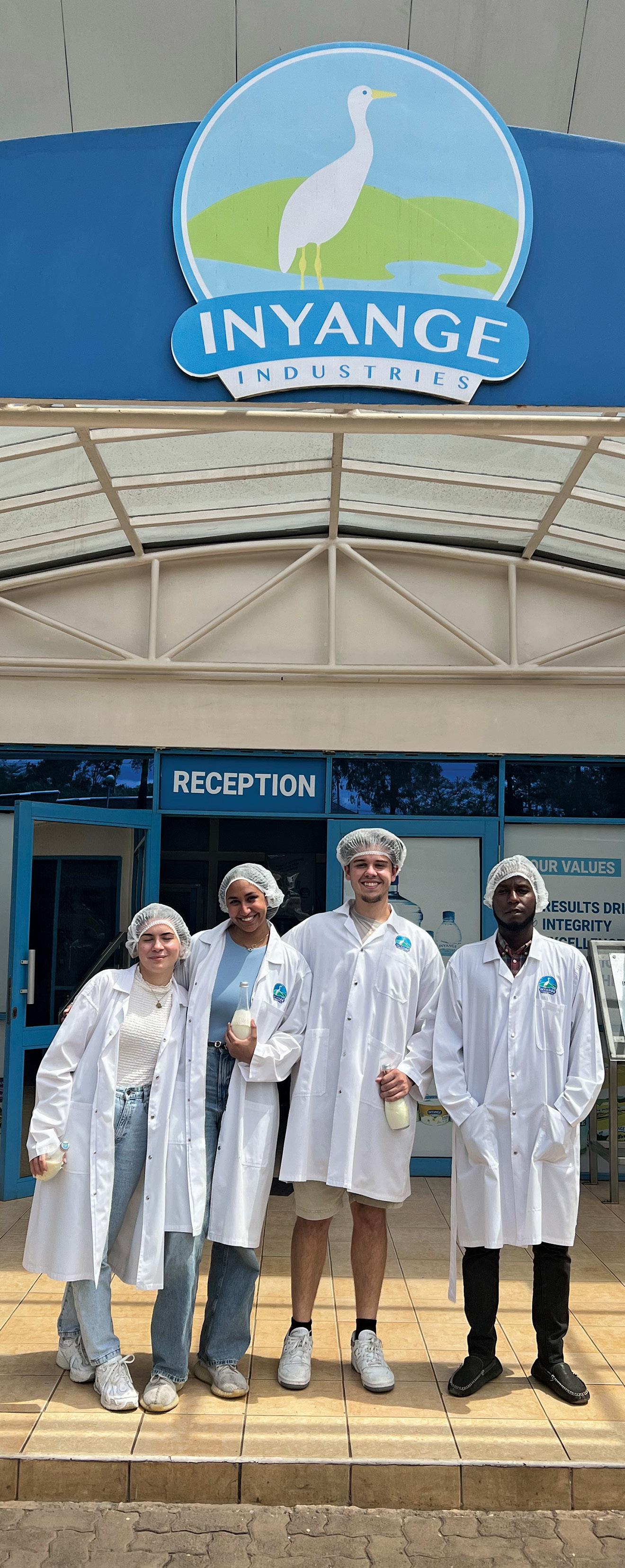
“And having been warned in a dream not to return to Herod, they left for their own country by another road.” Matthew 2:12
In a pre-marriage book that I use with engaged couples, Mary and Joseph and their journey with the infant Jesus are used as an illustration to talk about one’s ability, in marriage and outside of it, to adjust to things beyond our control. Mary was ostracized for getting pregnant outside of marriage.
She and Joseph had to go to Bethlehem to have the child
because of the oppression of a Roman census, then had to flee to Egypt because the ruler Herod wanted to kill all the male children, and then come back to Nazareth when Herod died. They were threatened, refugees, and had to make huge adjustments in their lives because Mary said “yes” to God.
Going home by another road is a test of marriage, for sure, and of our individual selves as well. We make plans, but those plans are changed, interrupted by circumstance, tragedy, or an
unforeseen obstacle.
The writer of James pulls no punches in his style when he confronts the belief that we can plan our future with much assurance:
Come now, you who say, “Today or tomorrow, we will go to such and such a town and spend a year there, doing business and making money.” 14 Yet you do not even know what tomorrow will bring. What is your life? For you are a mist that appears for a little while and then vanishes. 15 Instead, you ought to say, “If the Lord wishes, we
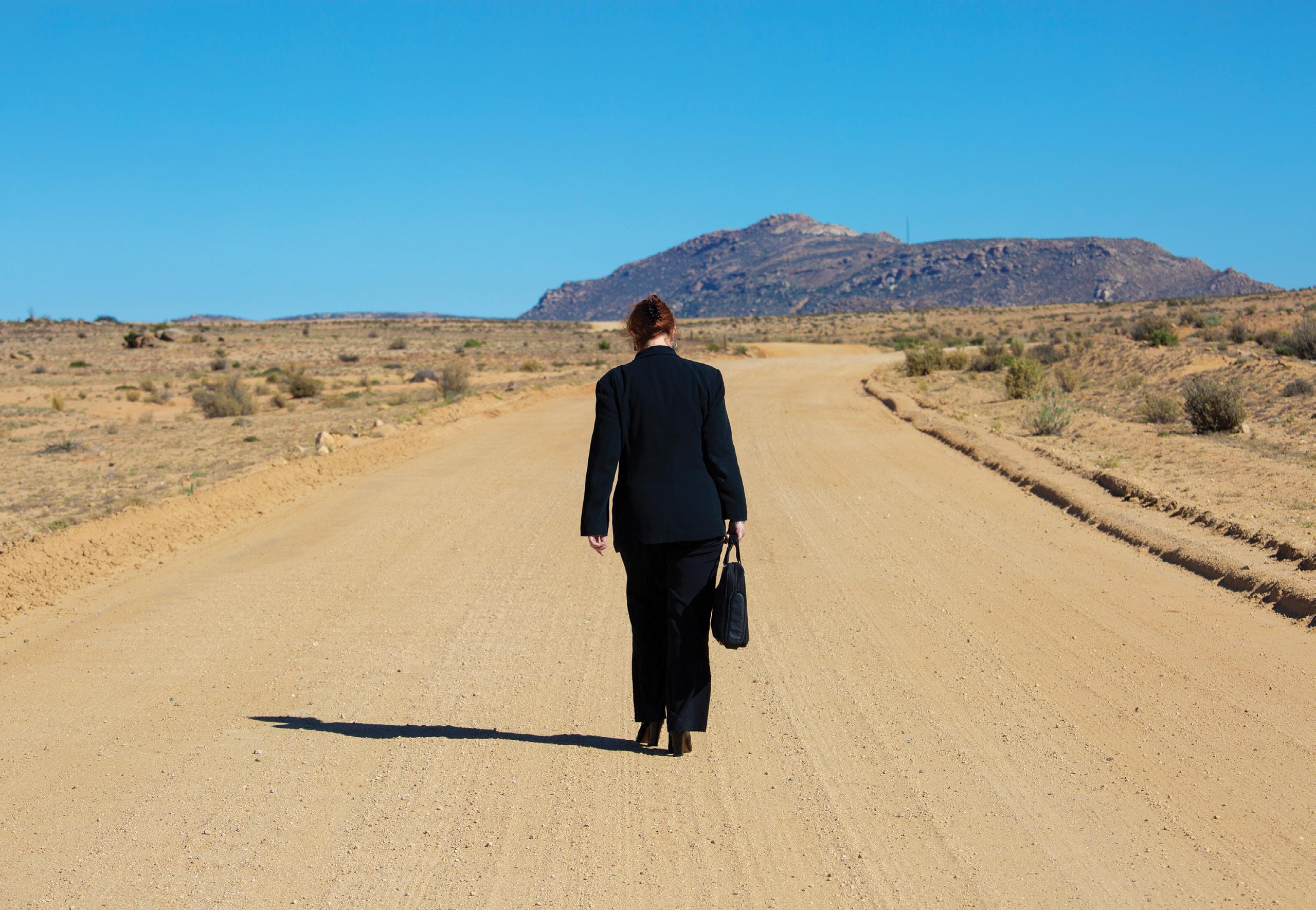
will live and do this or that.” James 4:13-15
Now, to be clear, adding “If the Lord wishes” to every conversation we have about the future starts to sound lame quickly. But the point James is making is that in the grand scheme of things, our lives are only a “mist” in time.
In the world James lived in, there was far less certainty about anything.
Our materialism and technology have given us the illusion we can plan our futures with confidence. In early 2020, at the start of the COVID-19 pandemic, almost overnight, our lives suddenly became far more uncertain.
You may have had grand plans for things that went on hold. Everything from work to family interaction changed in an instant.
Grandparents separated from grandchildren, cousins, and siblings, only interacting over video platforms or the phone. Isolation became the order of the day. Minimizing trips or getting others to do things once thought routine, like getting groceries if you are a senior, was the new norm. You planned one road, but because of this virus, you were going home on another route.
There’s lots of biblical precedent for going one way there and another way back. If you read the book of Acts, for example, you see a church very much discerning on its feet as it walks ahead, trusting God to lead in spite of many huge roadblocks. We are invited on the same journey of road-wandering, daily trusting, and prayer-for-the-next-step faith.
Invitation: You may be able
Throw away those visions of sitting on a cloud in the afterlife watching someone play a harp.
In a Christianity Today column, Jen Wilkins writes that retirement will not be a thing in heaven. Instead, we will know work as it is intended to be.
Imagine work free of frustration and dreariness, more like our most satisfying day of work ever than the dreariness that some toil can be.
“One day, we will labor again as we were created to labor,” she writes. “And we will sabbath as we were created to sabbath. Our labor will not frustrate, and our rest will not bore.” .
Why does Mennonite Men exist in the 21st century, a time of movement towards gender equity and inclusion?
Steve Thomas, the organization’s US director, grapples with that question in an article in Anabaptist World magazine.
“Mennonite Men is about engaging men to grow, give and serve as followers of Jesus for God’s Shalom,” he writes.
“We promote an Anabaptist way for men that focuses on following Jesus, forming community and building peace with a model that is more whole and life-giving than our culture’s dominant version of masculinity.” .
to think of times when there were obvious detours in your life. At other points, those detours became woven into your life journey so it’s hard to remember them.
What are the detours you are making these days? Do you have any sense of how God might be using them?
Is there an obstacle in your path you need to commit to God today? Offer it to the One who says we can “cast all our cares on him, because he cares for you.” 1 Peter 5:7 .
Volume 54, Issue 3
May June 2024
The Marketplace (ISSN 0199-7130) is published bi-monthly by Mennonite Economic Development Associates, 100 S Queen St Ste 235, Lancaster, PA 176035368. Periodicals postage paid at Newton, KS 67114. Lithographed in U.S.A. Copyright 2023 by MEDA.
Editor: Mike Strathdee Design: Ray Dirks

Postmaster: Send address changes to The Marketplace 100 S Queen St Ste 235 Lancaster, PA 17603-5368
Change of address should be sent to Mennonite Economic Development Associates, 100 S Queen St Ste 235, Lancaster, PA 17603-5368.
To e-mail an address change, subscription request or anything else relating to delivery of the magazine, please contact subscription@meda.org
For story ideas, comments or other editorial matters, email mstrathdee@meda.org or call (800) 665-7026, ext. 705.
Subscriptions: $35/year; $55/two years.
Published by Mennonite Economic Development Associates (MEDA). MEDA’s economic development work in the Global South creates business solutions to poverty. MEDA also facilitates the connection of faith and work through discussions, publications and conventions for participants.
For more information about MEDA call 1-800-665-7026. Web site www.meda.org
Want to see back issues or reread older articles? Visit https://www.meda.org/download-issues/
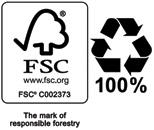
The Marketplace is printed on Rolland Enviro® Satin and is made with 100% post-consumer sustainable fiber content, FSC® Certified to help meet client sustainability requirements, Acid Free, Elemental Chlorine Free
Cover photo of WE4CA client by Caleb Longenecker-Fox
Unpasteurized milk is a major cause of serious illness and death in East Africa.
A company started by some Ontario university students has developed a product that could dramatically reduce the incidence of milk-borne illnesses.
Safi hopes to set up shop in East Africa this summer. The company has been funding its product development from prizes won at a handful of pitch competitions.
It has conducted pilots in Rwanda, Kenya, and Oman and has orders for 16,000 of its low-cost milk pasteurization devices.
Safi is a Swahili word that means safe or pure. Safi, the company, emerged after a group of six university students wanted to use their skills to have a positive impact on the world beyond just helping
businesses make more money.
Three years ago, they pitched an idea at the Challenge for Climate Action competition. “It really came down to how we can use our business skills to do good,” said Miraal Kabir, one of Safi’s cofounders.
Kabir grew up in Oman, an oil-rich nation in the southeastern corner of the Arabian Peninsula. Her younger sister, Iman, learned about the problem of spoiled milk while doing a high school project on milk supply issues in that country.
Due to climate change, spoiled milk is becoming an increasing problem in many countries.
Jeffrey Farber, an adjunct professor in the Department of Food Science at the University of Guelph, has provided food safety advice to the students. He thinks
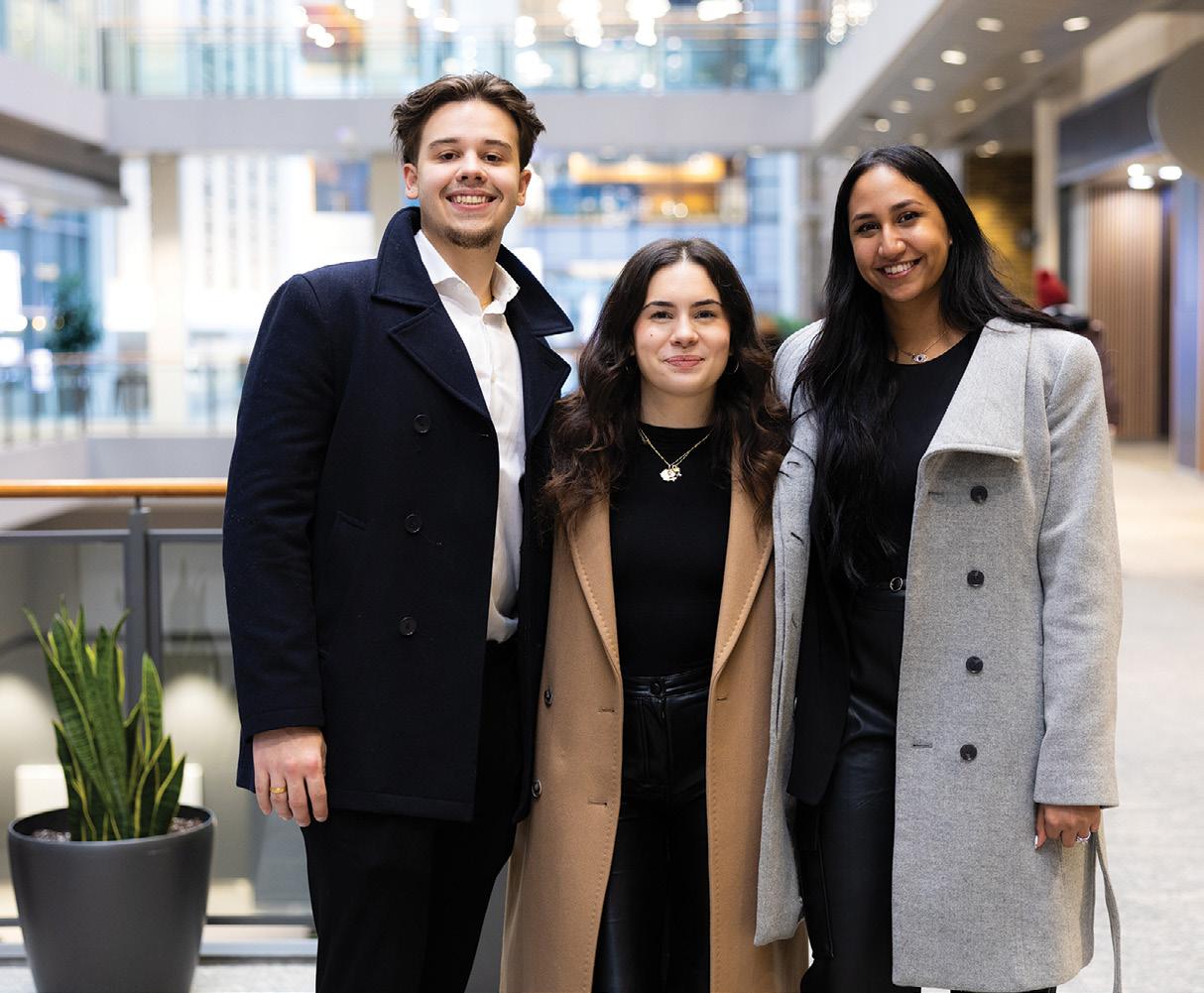
that commercialization of Safi’s product “would be very significant. East Africa has one of the highest global incidences of ill health and early death from [unpasteurized] milk,” he said.
The students never thought they would take their idea to address that problem past the initial case competition. However, judges at that event told them they should work on commercializing their product to make milk pasteurization affordable for small-scale dairy farmers and milk vendors.
Three of the six students involved in the competition — Kabir, Daria Margarit, and Martin Turuta, all university students in Waterloo, Ontario, decided to work at building a company. Another friend, Filip Birger, a student at Hamilton’s McMaster University,
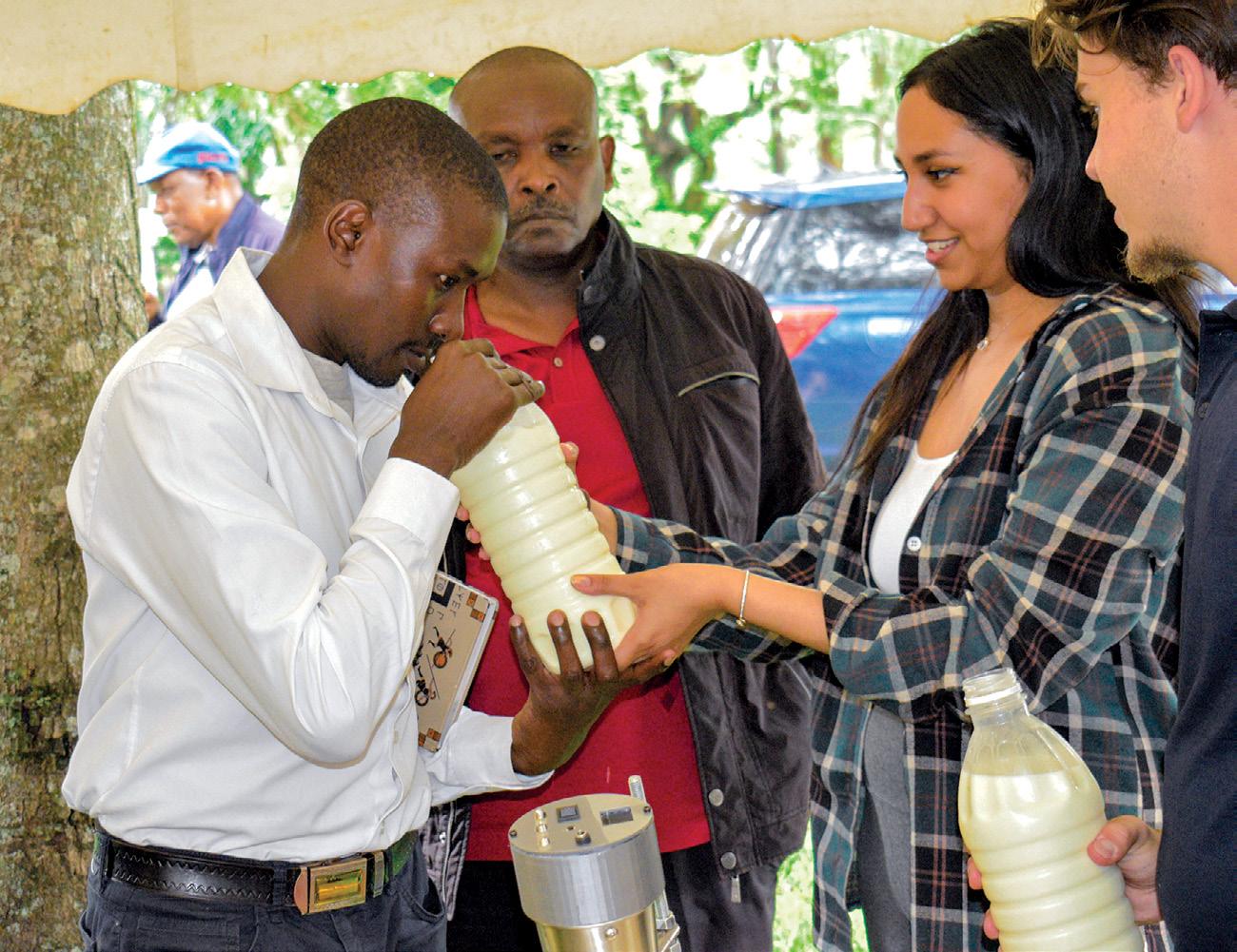
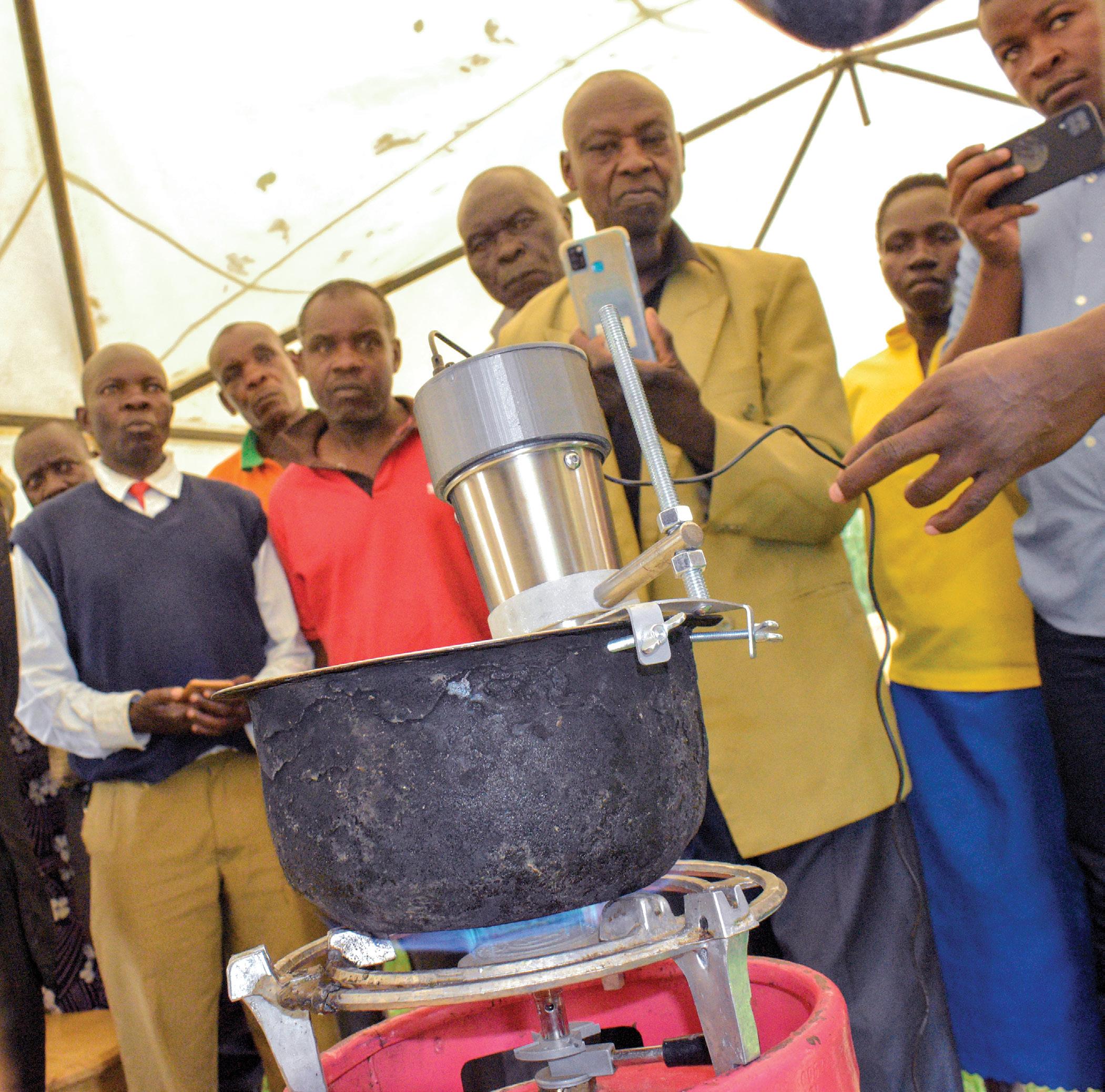
joined them as head of engineering.
Kabir is studying computer science and business at Wilfrid Laurier University and the University of Waterloo. Margarit and Turuta both major in math and business at the same universities.
The group has won cash prizes to support Safi’s development at almost every pitch competition they have entered. Concept, Validate. global, StartUp Laurier, the Queen’s University Entrepreneurship competition, University of Waterloo Velocity, United College GreenHouse, and Enactus Nationals have all named Safi as a winner.
Last summer, Safi won $10,000 US at The American Society of Mechanical Engineers Innovate hardware pitch. That win involved six sessions and 100 judges in a virtual competition. It also gave them access to a hardware accelerator for social innovation.
Safi did not expect to win that contest “just because the competition was so strong, and the [other] products were so developed,” Turuta said.
“When we went to Africa in September, all those learnings really helped us to be on the front foot rather than the back foot.”
“Each competition has been a guiding force that led us to the next competition,” Margarit said.
Those wins have prepared Safi for the next stage of pitching to investors. The company will need to raise over $400,000 to manufacture the devices for which the company currently has orders.
Developing a product to test took considerable trial and error. Safi made 20 “mini prototypes” before coming up with five proper test products. “None of us are engineers by background,” Margarit said. “Maybe by trade now, but not by background.”
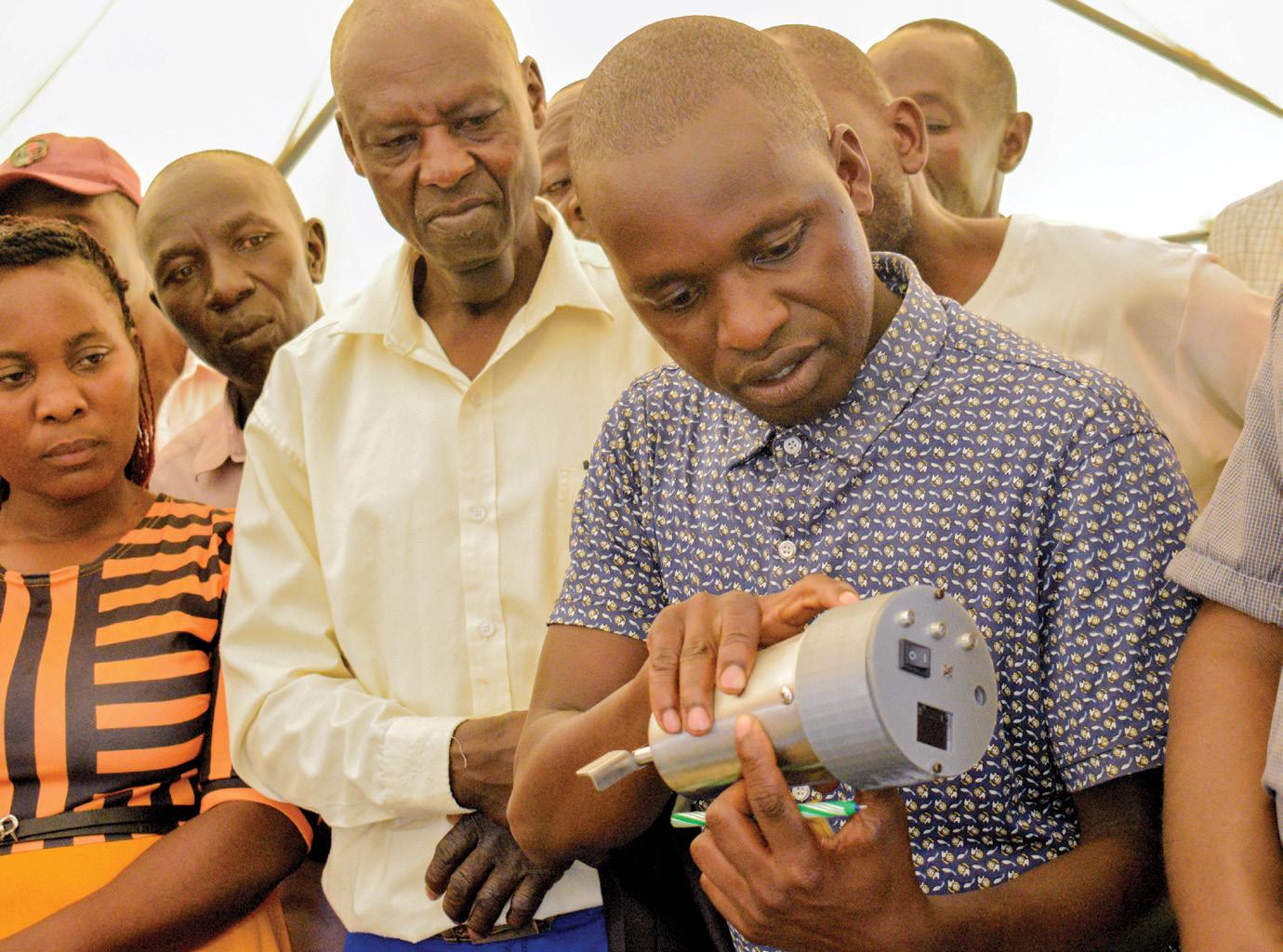
“The false hope that we knew what we were doing carried us to build our first prototype.”
The group “hogged” a university 3-D printer intended for occasional student use over four months, making a new prototype every week. “We politely basically got kicked out” and had to buy a printer for Safi, Margarit said.
Turuta said the current version will change again. “Our next design looks pretty different.”
He thinks they can produce their product for about $30 US and sell it for about $50 US.
“From the get-go, it was always our goal to make it as cheap as possible because that leads to accessibility,” Margarit said.
Safi estimates that its product will pay for itself in around two weeks. Farmers who use this can sell their milk at a 58 percent premium. That would still be much less expensive than the cost of pasteurized milk in the formal sector.
Safi has also had discussions with partners about the possibility of offering farmers micro-loans to make it easier for them to purchase the product.
Current methods of pasteurization used by small-scale farmers require boiling the milk three times. That removes all of the vitamins from the milk as well as any pathogens.
Safi’s device heats milk to 70 degrees Celsius for 15 seconds, eliminating pathogens while retaining nutrients and requiring only one-third as much energy.
The next cheapest pasteurization product on the market sells for between $300 to $400 US.
Most of the farmers in their target countries run small-scale operations with about three cows. “Another challenge for them is, because they have such small yields, they don’t have much power in the market, which is why they give their milk to aggregators … who give them a low price,” Kabir said.
Margarit thinks Safi’s device could open up a new market — customers who want pasteurized milk — for the small-scale farmers. She thinks selling directly to consumers could earn the farmers twice as much for their milk.
Safi wants to build a modular product with LEGO-like pieces, such as the whisk at the bottom of the pasteurization handle that can be popped off and updated.
It is working to build a team of people in the countries where the product is sold who can quickly do repairs if anything goes wrong. “One of the biggest points of the product is [to ensure that] it has longevity,” Turuta said.
One of the next big steps for Safi is to find a contract manufacturer to fabricate its device. Then, the company will determine which country has the least barriers to importing its device. Navigating customs in East Africa can be a challenge.
On a previous trip, one of their prototypes was held in customs for a $400 valuation until they could prove it was only worth a fraction of that amount. Eventually, they hope to look into having at least parts of the device manufactured in East Africa.
Safi currently has a pilot in Rwanda with female retailers who sell milk in stalls and a separate pilot with farmers in Kenya who sell directly to customers. Its pasteurization system can be used to pasteurize milk at whatever stage in the value chain stage makes the most sense.
Safi is planning to set up a larger pilot project, with 50 to 100 units, on the students’ next trip to Africa this month.
The company has already demonstrated the need for their product. Still, the three founders hope to validate their proposed business model in the coming months and ensure that the supply chain works the way they hope it does. A key task will be to test Kenyan farmers’ ability to earn a premium for their milk by using Safi’s device.
Given the subsistence-level incomes of many of those farmers, they may need help purchasing the device, said food safety researcher Farber. “I personally feel there will have to be some incentives for uptake,” he said.
Margarit said that education will be key to the success of Safi’s device. On a previous trip to Africa, the group met with 100 farmers to discuss the importance of pasteurization.
Rwanda has a strong milk cooperative system, where farmers are mandated to give their milk to a large producer. “Rwanda’s a special jewel,” she said. “They sort of have their system all figured out, but they do lack in private retailers.”
“In Kenya, it’s more from the ground up and kind of earlier on, directly from the farmer.”
Uganda, Kenya, Tanzania, and Rwanda are the major milkproducing countries in East Africa.
Kabir, Margarit, and Turuta
presented at an African dairy industry event in Uganda last August. At that event, they caught the attention of Uganda’s agriculture minister. He was publicly supportive of their work.
On that trip, they also learned about issues of spoilage with milk in East Africa. Uganda produces enough milk to meet its domestic demand. However, it imports milk because the supply chain is not optimized to ensure that milk makes it to the end user.
The Problem: East Africa has the highest global incidence of ill health and early death from milk-borne diseases.
Ninety percent of milk is sold through the informal, unregulated market, which provides work for 58 million small-scale African farmers and vendors. On average, pasteurized milk in the formal market sells for triple the price of raw milk in the informal market.
The United Nations predicts that East Africa will see more than a 50 percent increase in drought in the coming years due to climate change.
Farmers will be able to sell milk less often, turning to camels as livestock. But camels are carriers of many diseases, including the MERS coronavirus, which is 10 times deadlier than COVID-19.
As many as 70 percent of camel herders do not pasteurize their camels’ milk due to the cost of doing so.
That means increased contact with camels increases infections with MERS and other diseases. Tuberculosis kills eight percent of the people who contract it.
Brucellosis and Q fever kill two of every 100 people who contract the disease. SAFI’s Kenya partner says that brucellosis is the most frequent ailment in that country after malaria.
There is currently no cheap and accessible way to pasteurize milk.
A solution: Safi’s flagship product is the world’s first off-the-grid pasteurization
control unit. It is powered by rechargeable batteries that are most often recharged from solar panels.
Safi’s low-cost system pasteurizes three to 20 liters of milk at a time and comes on an adjustable stand.
Traceability: A digital tracking system centralizes pasteurization information so regulators can trace milk throughout the market system. Real-time tracking of metrics can create transparency in the entire dairy supply chain.
Safi is in talks with the Rwandan and Kenyan governments about paying for the data streams its devices generate.
How it works:
1) Add milk to any sized pot over an existing heat source;
2) Attach the adjustable pasteurization device to a pot using clamps;
3)Turn on the device to stir milk and measure the temperature;
4) Follow the process through the LCD screen on the device until a green light turns on. Color-coded indicators on the device accommodate all literacy levels.
A high-profile endorsement: “Your innovation is a game-changer... I think we need to brace ourselves. The solution we have been wishing for is at our doorstep.”
— His Excellency Rwamirama Bright Kanyontore, Uganda’s Minister of State for Agriculture, Animal Industry and Fisheries
That gave Safi the idea for a second product to address the refrigeration problem and extend shelf life. The group hopes to pilot that solution during its current trip to Africa.
Safi wants to track milk postpasteurization to ensure that issues with cooling and packaging don’t undo the benefits of its first product.
The company has filed a provisional patent on its device. It is in discussions with a patent lawyer about filing an official patent. “The goal will be to essentially validate this product and the business model” before going further, Turuta said.
The patent process is timeconsuming and costly. He estimates it can take between one and two years and cost as much as $40,000 to $50,000.
Safi is currently incorporated as a not-for-profit in Canada and will maintain that for hardware development. The founders plan to set up a for-profit company for its software product in either Kenya or Rwanda later this year.
Kabir, Margarit, and Turuta will all graduate from university in August. They plan to move to East Africa, likely Rwanda or Kenya, at least for a few years.
“I don’t think any of us see a way to do this from Canada, to have one foot in the door,” Turuta said.
If Safi succeeds in East Africa, there will be even larger market opportunities. Yogurt and cheesemaking are potential future applications.
India has 75 million smallscale dairy farmers, the most in the world. That is over 50 times Kenya’s 1.5 million small-scale dairy farmers.
One of their African partners wants the group to go to India. But Miraal said that Safi is “almost closing our eyes” to that opportunity for now. .
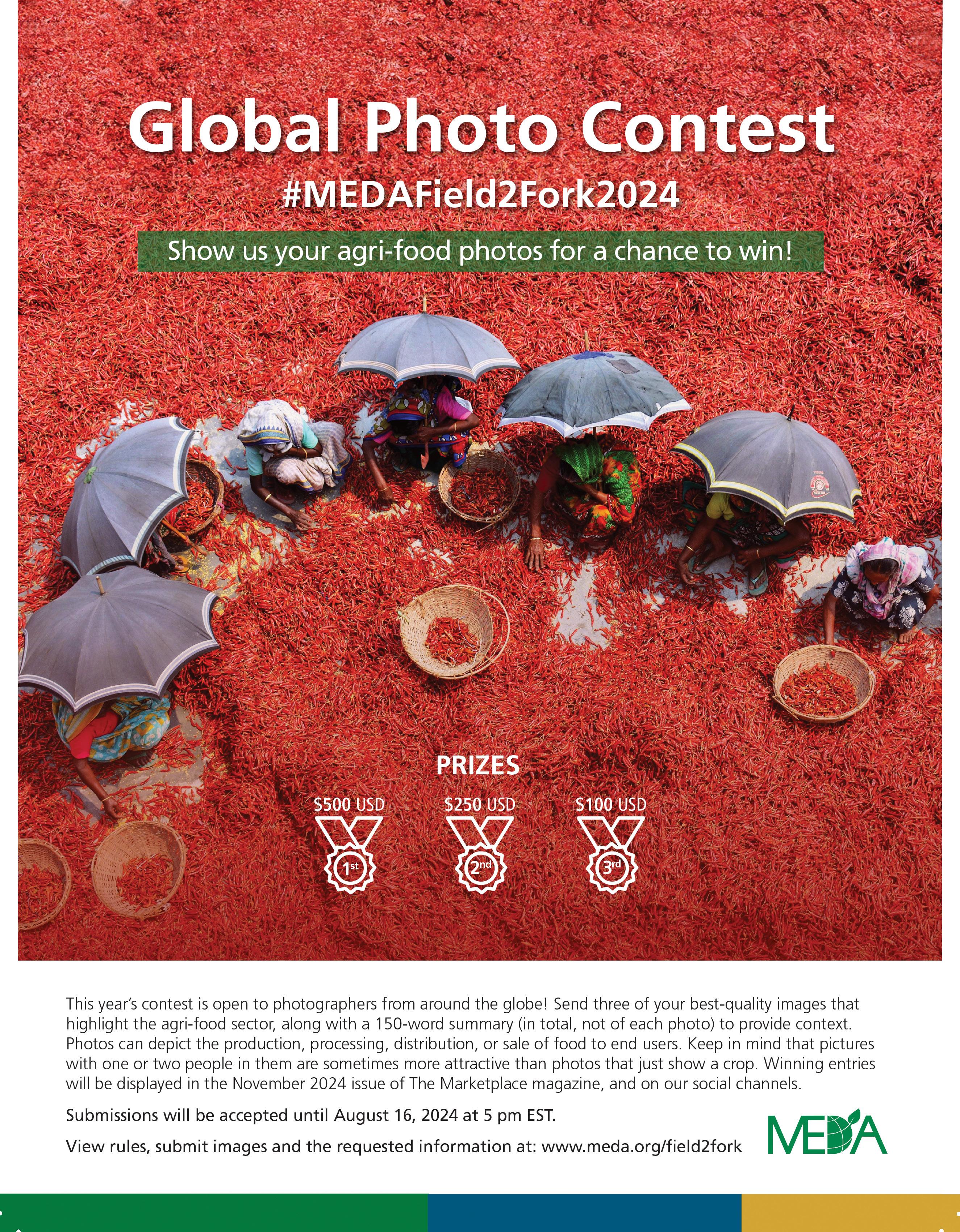
When a farmer from Ghana meets an Ontario peer, both have concerns about changes in the weather.
But Ryan Martin’s Ontawa Farms near Elmira is far better prepared to mitigate climate challenges than the people who Zakaria Issahaku works with in northern Ghana.
Martin, 45, is a fourthgeneration dairy farmer. He, his wife, Lori, his father, Ralph, and his brother, Phil, milk 130 Holstein cows and crop 280 acres of corn and alfalfa. Their crops are used to feed their herd. They buy 15 percent of their feed, primarily corn gluten, protein, and mineral supplements.
The Martins also have 180 Angus beef cattle. Three-quarters of their income comes from milk, the rest from beef, a commodity with cyclically volatile returns.
The farm has two part-time employees who help with milking. Their cows each provide up to 60 liters (about 15.9 gallons) a day and are milked twice daily.
On a bitterly cold late February morning when temperatures had dropped dramatically from an unseasonably warm few days earlier in the week, Ryan Martin’s thoughts were turning to spring planting.
An overly wet, late spring can wreak havoc with the corn crop that feeds their herd.
“If you’re three weeks late planting your corn, it can really
by
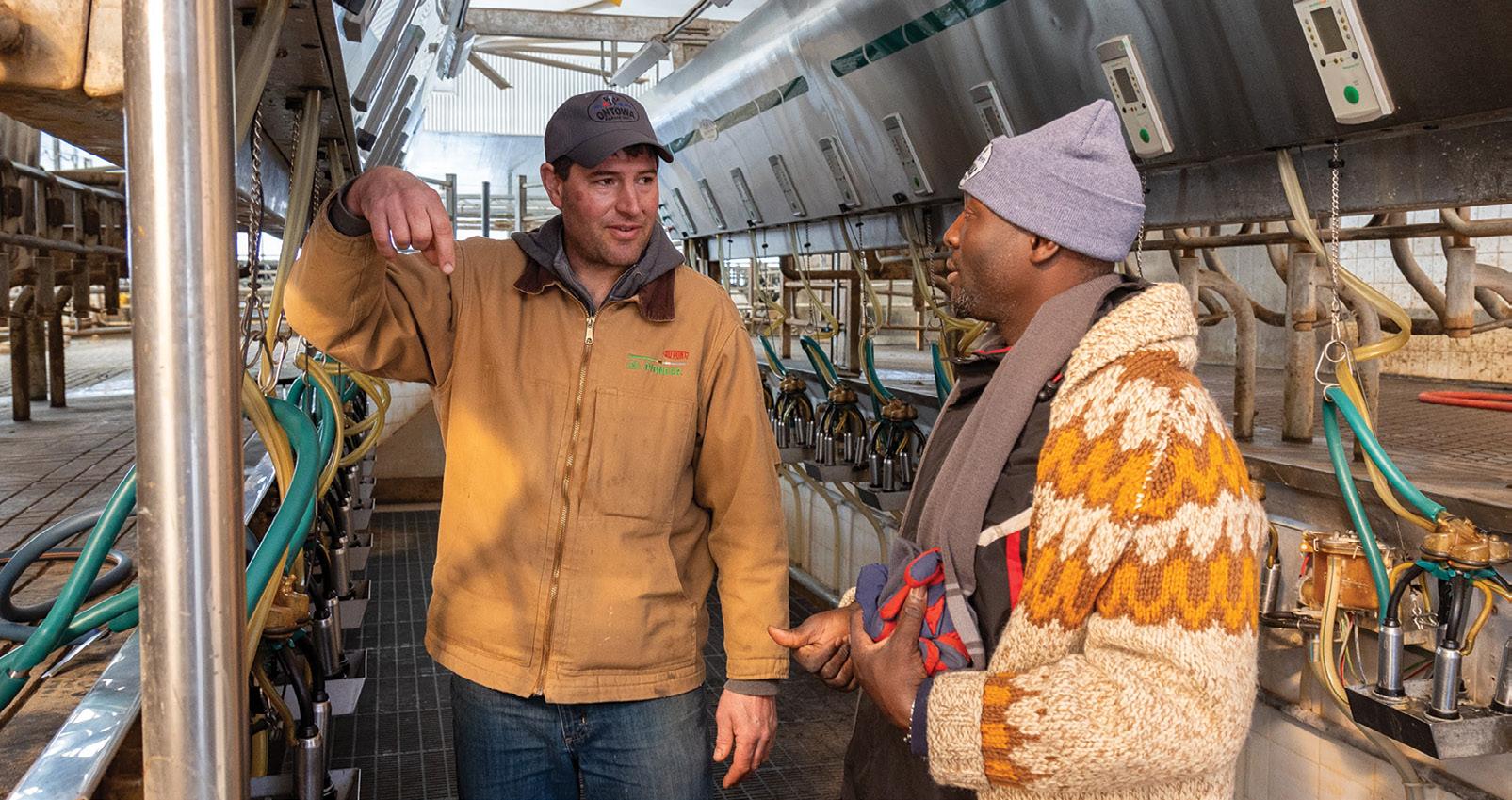
suffer, your corn yield,” he said. “Just the way the rains fall and when the heat hits, you want a developed corn root mass to handle the heat of the summer.”
As for his livestock, dramatic temperature swings can be a challenge, depending on when the changes happen.
Holstein cows and Angus cattle are cold-weather animals, most comfortable at three degrees Celsius. “The most stressful time of year (for the animals) is actually spring and fall.”
Cold weather keeps away disease and insects. “If we get more and more mild winters, we won’t have the [disease] kill-offs, or they [disease problems] will come up sooner.
A warm day followed by a
cold snap with a strong wind can cause problems for animals that are outside. “The younger ones, we have to watch especially for respiratory disease.”
Martin vaccinates his cows twice a year for seasonal respiratory pneumonia. “The vaccine doesn’t last long, so I always have to guess when to vaccinate for that [often in late March).”
“When it’s minus 10 (Celsius, or 14 Fahrenheit) and goes to minus 25 (-13F), no big deal, but there’s a respiratory bacteria that thrives… it’s always around, it’s just that when the immune system drops, they (cows) are more susceptible to it.”
A quick temperature drop combined with high humidity can
lead to problems, he said.
Swings in seasonal rainfall have been noticeable in recent years. But while cropping seasons have been drier, improved corn genetics have allowed the Martins to enjoy good yields even in very dry years. Their farming relatives in Iowa had below-average yields in very dry years, “but they said: 30 years ago, it would have been a crop failure.”
“Plant genetics is definitely saving us from some of these disasters.”
The Martins store their extra feed, sometimes up to 30 percent of their harvest, for future use within the following 2.5 seasons.
Over the past 50 years, weather changes have allowed Ontario farmers to grow longer-season corn. This crop is a bit risky but has greater yield potential.
Issahaku grows 1,000 acres of corn on his farm in Tamale, northern Ghana. He also works with small-scale farmers in his role as a market systems technical specialist for MEDA.
Those subsistence farmers tend to do mixed farming on two to threeacre plots with free-range animals, mostly to feed their families.
MEDA’s focus is to work with clients to improve their operations.
“Climate variability is having a huge impact,” Issahaku said. “These are farmers who are not using improved seeds. They are using 50-year-old seed varieties, so when there’s two weeks drought, the maize will all wither. If there are floods, everything goes away.”
Because they are not managing the soil well, there are problems with erosion. Fertilizer prices are very high, “so at the end of the day, they are really struggling to make ends meet,” he said.
Northern Ghana’s dry season is from November through May. That restricts farming in the north to between June and October. Farmers
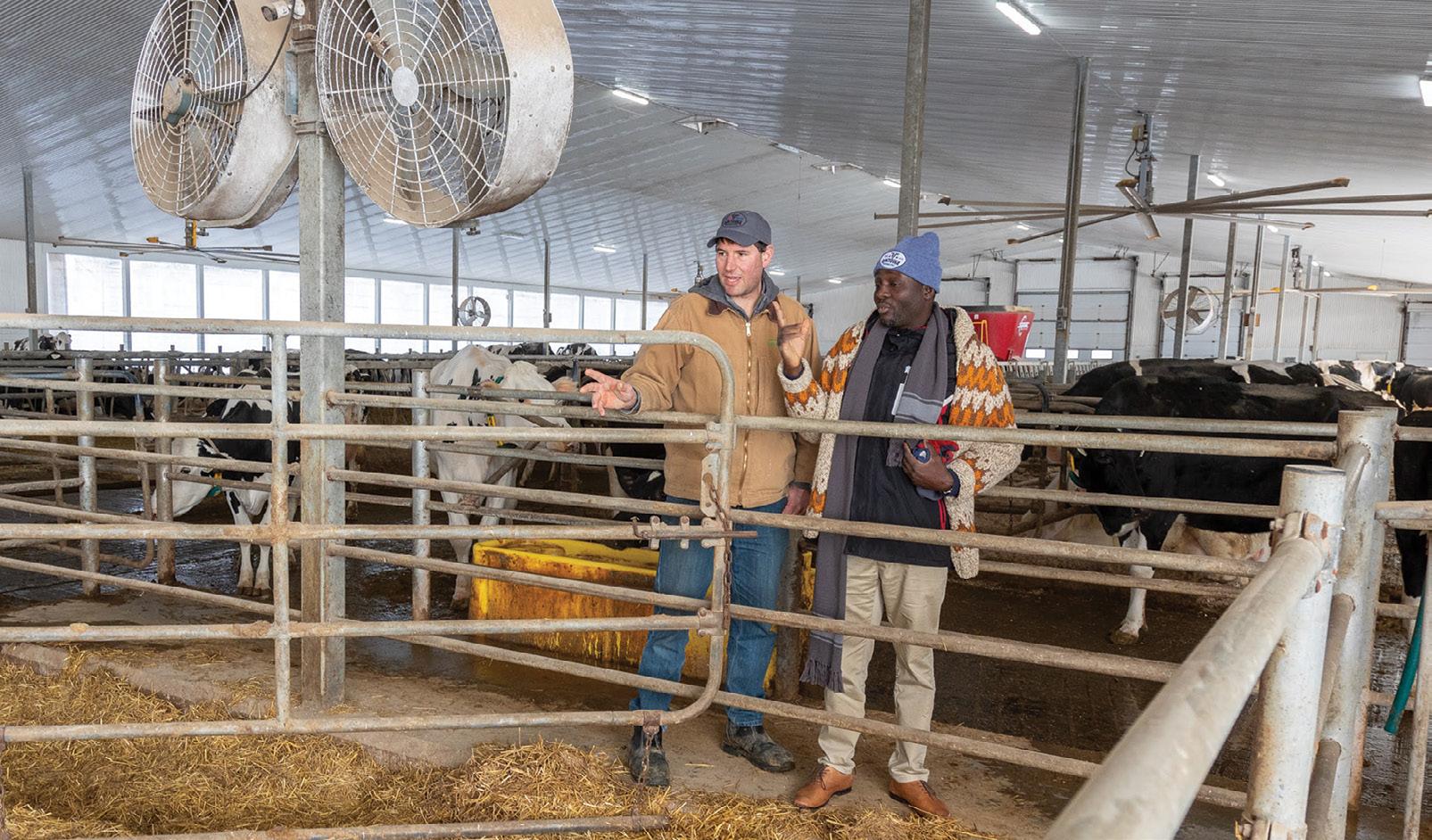
how barn fans keep his livestock cool. processing industry.
in southern Ghana receive more rain and can grow two crops a year. Farmers in northern Ghana can only grow a single crop.
MEDA and its partners try to demonstrate ways to improve common farming practices. “But there are still a lot of people who are stuck to the old way of doing things.”
Insurance companies are not interested in providing coverage for farmers “because it is very risky.”
In Ghana, farmers who seek bank loans to finance their agriculture face interest rates of up to 45 percent. People who have money view agriculture as the very last option for investment “because the uncertainties are very hard.”
Issahaku has a strong agricultural background. His father was a commercial cotton, corn, millet, and sorghum farmer.
Martin enjoys a number of collaborative supports that Ghanaian farmers can only dream of. Canadian dairy farmers operate under a supply management system with a guaranteed price based on the cost of production.
Dairy farmers are paid on the basis of the butterfat protein content of the milk they ship, not on the volume of milk produced.
The Martin farm is also part of a processors’ co-op to which one-third of Ontario dairy producers belong. This relationship gives farmers a window into the
Their farm is able to use water from a spring-fed, 12-foot-deep well to supply the entire farm and two households, as well as water cows and wash milk equipment. The farm uses solar panels that help to heat water in their dairy barn, mostly in the summertime.
In many African nations, the ability to grow vegetables depends on access to bore holes as much as 100 meters (328 feet) deep, with water pumped out using power from solar panels. The cost of this is out of reach for most farmers, Issahaku said.
When Ryan Martin considers ways to shrink his farm’s carbon footprint, he recognizes the need for energy to fuel the machinery that works the land.
He thinks hydrogen, possibly derived from methane or produced through fuel cells, not batteries, will be the best future replacement for fossil fuels.
Hydrogen systems could be developed quicker if governments invested money in their development as they are doing for battery plants, he said.
Issahaku is impressed with how farmers such as Martin share information through various industry associations. Farmers who MEDA works with in Ghana “will be better served it they work together in cooperatives,” he said. .
As part of celebrating MEDA’s 70 years of investing in entrepreneurs, The Marketplace magazine looks back at significant events in the organization’s history. Fifty-one years ago, MEDA’s board decided that seeking non-profit status in the US would help to further MEDA’s mission of creating business solutions to poverty.
For its first 20 years, MEDA operated as an investment club, with businesspeople financing its development projects. Canada Revenue Agency records show that MEDA first received charitable status in Canada in January of 1983, a few years after MEDA set up its first Canadian office in Winnipeg, Manitoba.
The news release below was issued by the Mennonite Central Committee News Service on April 6, 1973. Thanks to the MCC archives in Akron, PA, for sharing this.
Mennonite Economic Development Associates (MEDA) unanimously decided to apply for nonprofit status at its annual meeting on March 28 and 29.
The organization, designed to help small businesses in underdeveloped countries, was set up on a (for) profit basis because the members felt such a status would decrease the stigma of charity. MEDA aid was intended as a business proposition, not as relief.
The new nonprofit status will more adequately reflect the actual operations of MEDA; no profits have been made and distributed to

shareholders.
Most investors did not expect returns when they joined MEDA. They simply desired to share in an effective manner funds and business know-how with people overseas.
When MEDA becomes (a) nonprofit, supporters will receive tax credit(s) for contributions.
Most members do not believe nonprofit status will negatively affect their relations with the overseas projects.
“We still expect our businesses to be profit-making,” explained Lloyd J. Fisher, executive director. “And going nonprofit does not mean we will not make a profit. It means we, as MEDA members, will not take profit.”
Edgar Stoesz, Mennonite Central Committee Latin America director and major speaker for the meeting, shared his thoughts on the process of development.
“The object of development is people,” Stoesz said, “and involves people in community. Much development planning does not recognize the importance of collective action. When one or several members of a small group are helped to achieve a standard of living beyond the reach of others, they are often rejected by the community. The solidarity of the group is weakened.”
Stoesz also emphasized that development is a sequential process, and that Americans too often short-circuit the critical
educational stage.
“Development is achieved through institution building,” Stoesz noted. “Institutions aid in problem-solving, are instruments for collective action, and add permanence and stability to a process. It is important to distinguish relief activity from institution building. Institutions help to establish an indigenous process which generates its own energy.”
The initiative and responsibility for development activity must come from within the receiving system, Stoesz told MEDA members. “Untold damage has been done by well-intending workers who have suggested answers before they understood the questions.”
Stoesz pointed out that development should be an interdisciplinary process. Religious, economic, political, social and cultural aspects of development should at some point come together.
Development activity itself should be studied and learned from, Stoesz concluded. “Let it not be said that in a century characterized by brutal wars and refugees, we played with development as though it were a hobby. Development is the will of God, and that makes it Kingdom business. Scripture tells us that God loved the people of the world so much that He gave His only begotten son. Let us love those people too.” .
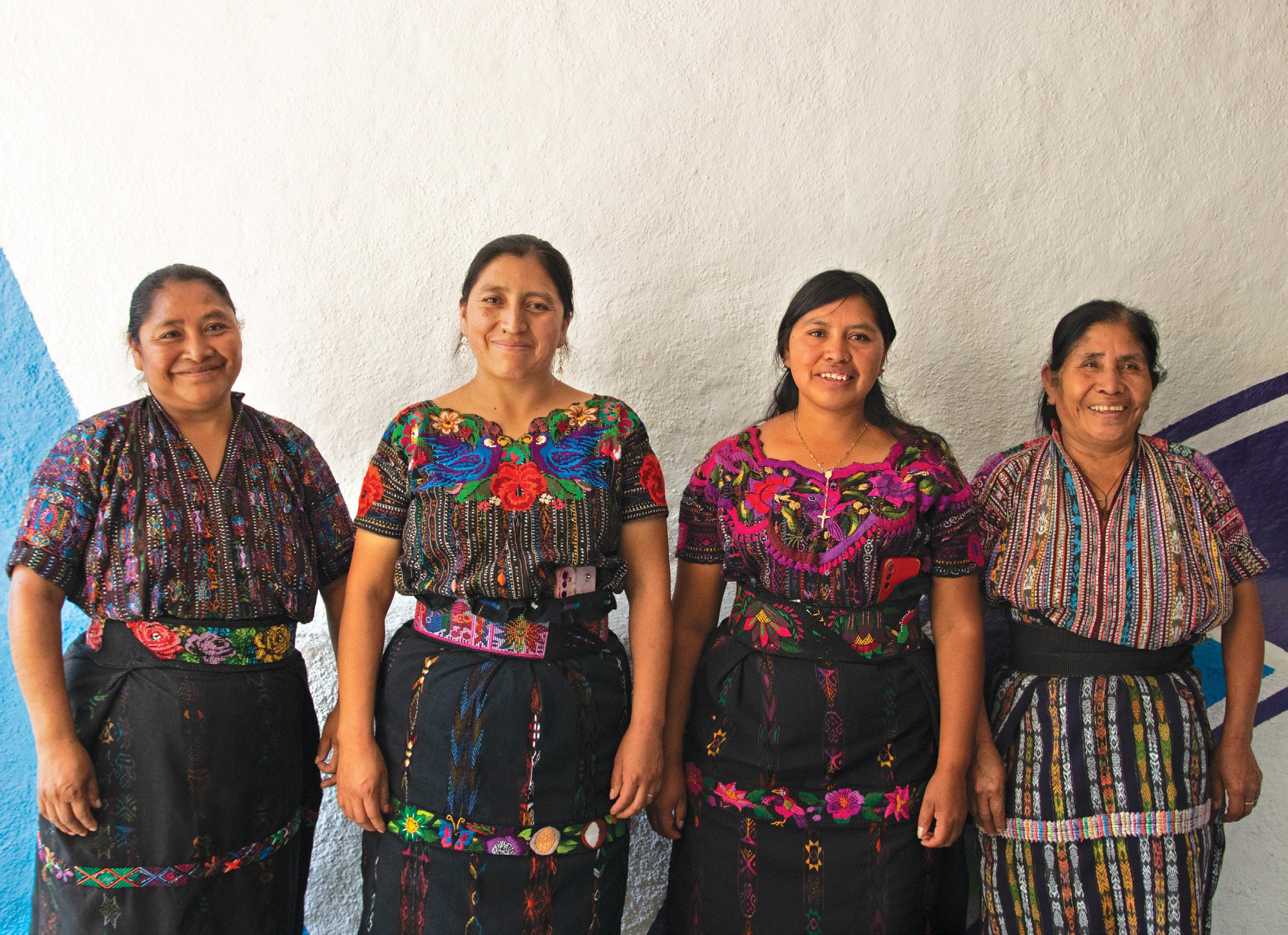
Guatemala has extremely limited opportunities for women and one of the region’s biggest gender gaps, Maria Pacheco says.
But Pacheco, the co-founder and CEO of Wakami, a 20-yearold social enterprise, sees great promise for the future. “We have learned that with women, you change everything. When women are empowered, the right men come to the system.”
Wakami is one of MEDA’s partners in the Women’s Empowerment for Central America (WE4CA) project. The effort, MEDA’s first project in Guatemala, is working with 5,000 rural and indigenous women in the areas of regenerative agriculture — chickens, gardens, and coffee — and light manufacturing, primarily handmade products.
Global Affairs Canada and MEDA supporters are funding the five-year initiative. It will assist women in improving their business performance, gaining access to gender-responsive financing and community services, and addressing gender-based violence.
“One of the things that we really love is [that]you [MEDA] have allowed us to expand our impact,” Pacheco said.
The WE4CA initiative gives Wakami the ability to scale, innovate, and learn, she said. The organization has expanded its reach with young women to 13 girls’ clubs, compared with only one in the past.
Wakami started doing handmade bracelets, “which needed zero capital, and then we started
doing bags, [and] now we’re doing clothes.”
It has also started another brand for home décor, including weaving and ceramic products.
A move into agriculture through the project also provides food security and additional income for participants. “We always dreamt that the Wakami women would have the chickens and the gardens, and with MEDA, we were able to do that,” she said.
“Now the women have two sources of income [handicrafts and agriculture], but also, they have their own food.”
Wakami never saw itself as being able to get involved with financing, viewing its work in providing training and markets as being all that it could handle. The
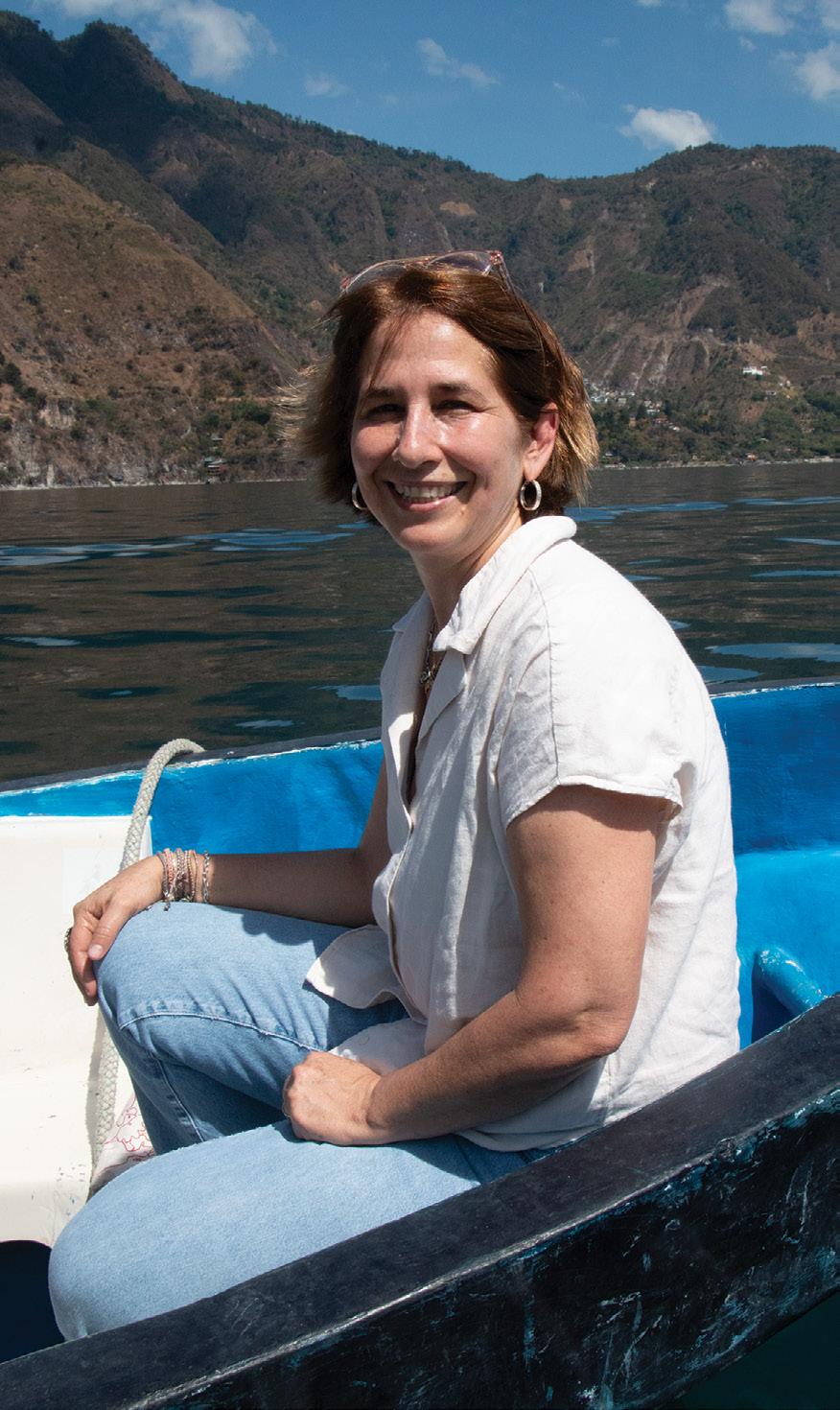
involvement of MEDA and Pro Mujer, a Central American social enterprise that is also part of the WE4CA partnership, makes this possible, she said.
“The most important thing for us is access to markets. With MEDA, we have been able to train the women, not incubate them, but accelerate them to the next level, and make them be better businesspeople.”
The needs are immense. While Guatemala has the largest economy in Central America, Pacheco estimates that 60 percent of the population lives in poverty. In many communities, men have migrated to find work elsewhere, leaving women behind.
Remittances from the US are the number one source of income in the country, she said.
A goal of women working with Wakami is “to have enough income to bring the husbands back and be a family together.” .

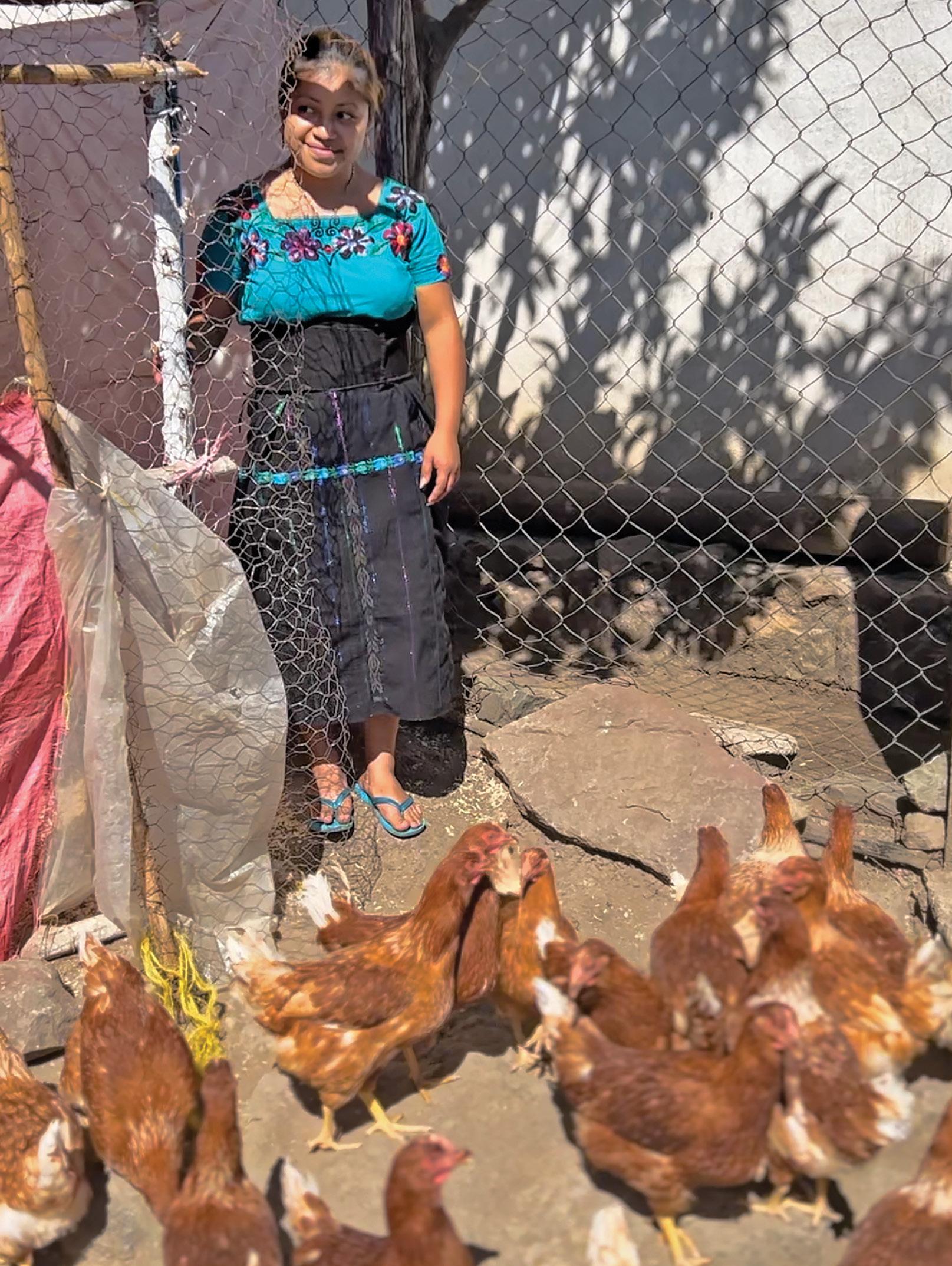 Maria Pacheco is co-founder and CEO of Wakami.
Maria Pacheco is co-founder and CEO of Wakami.
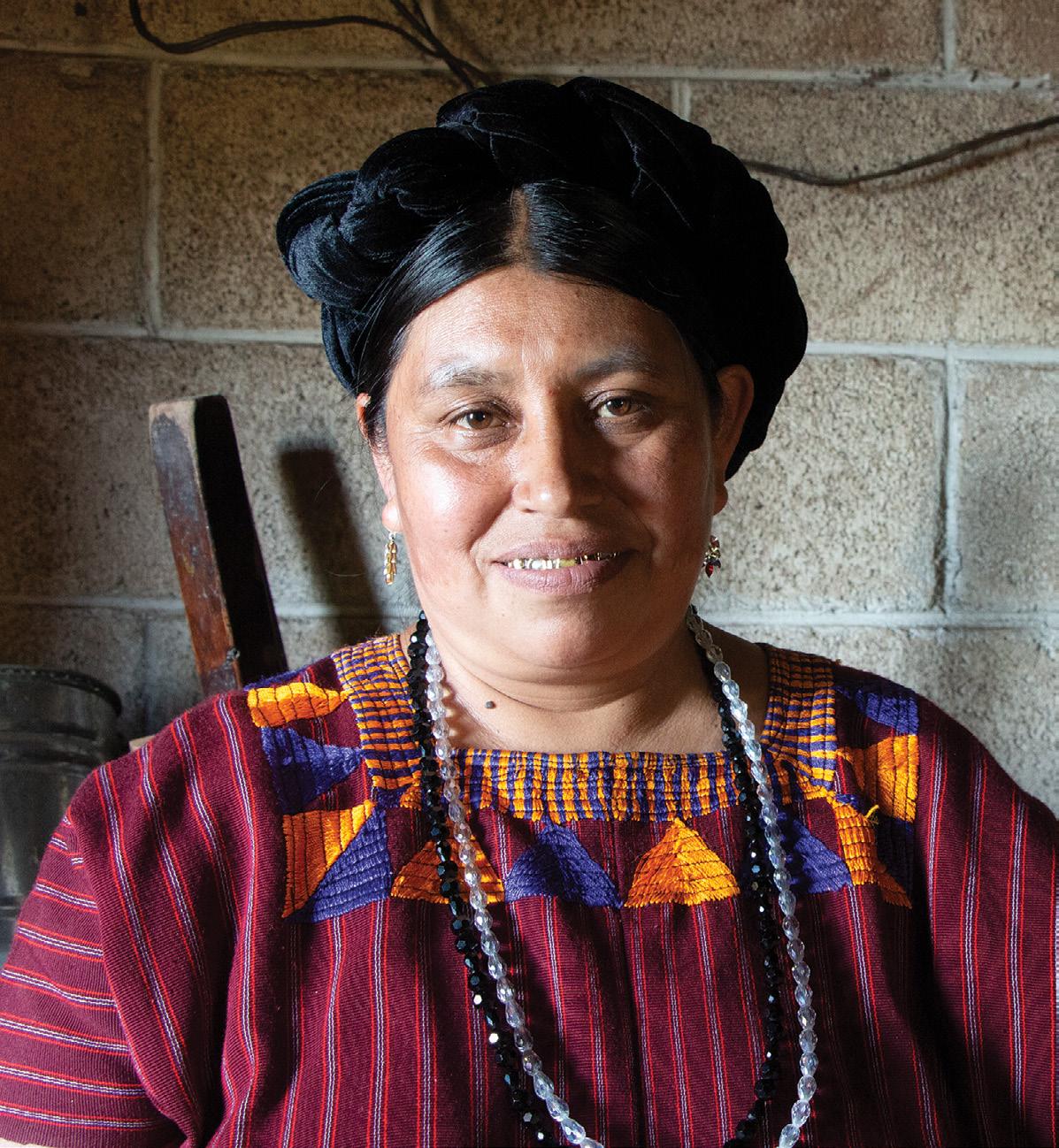
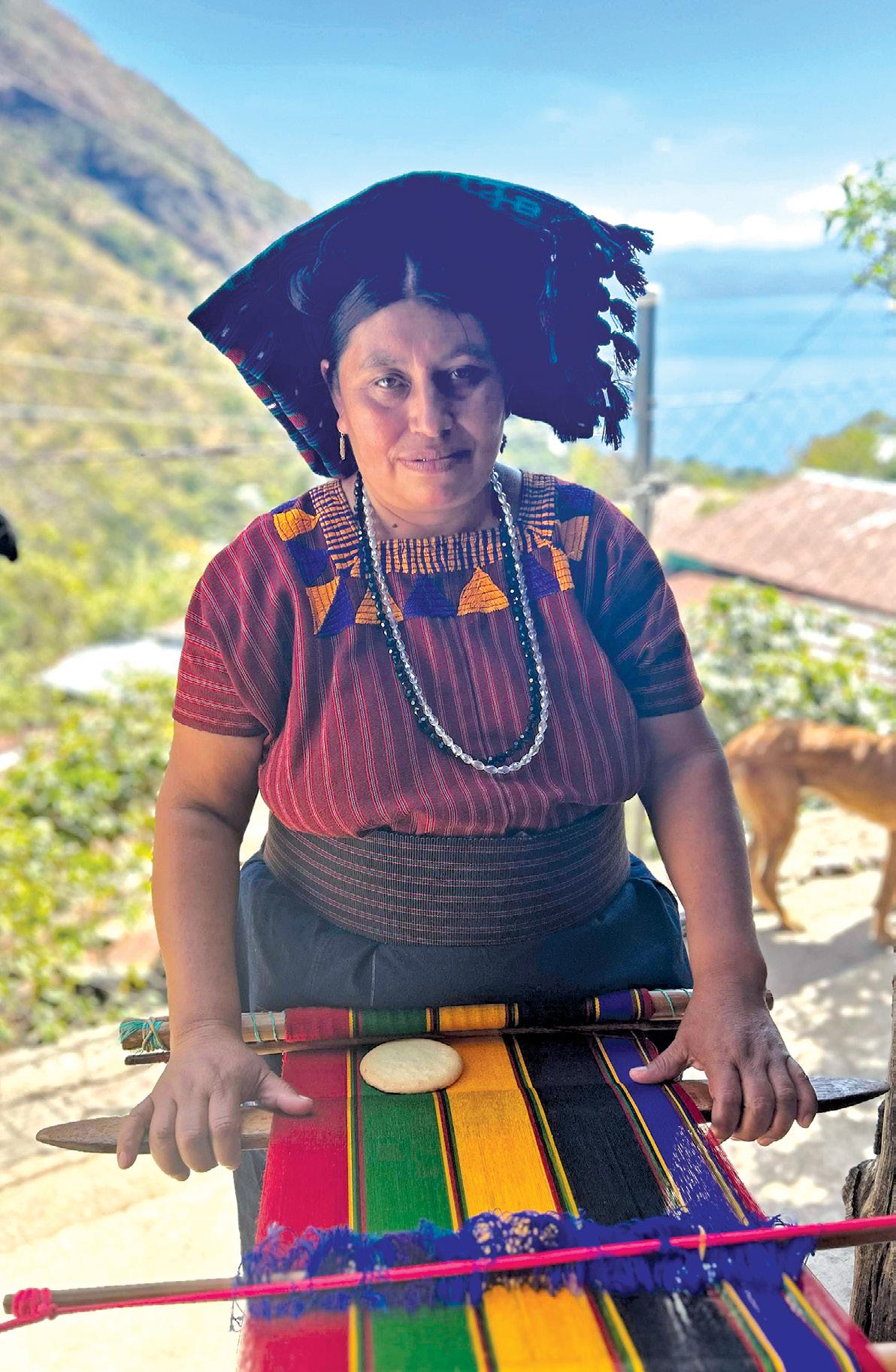
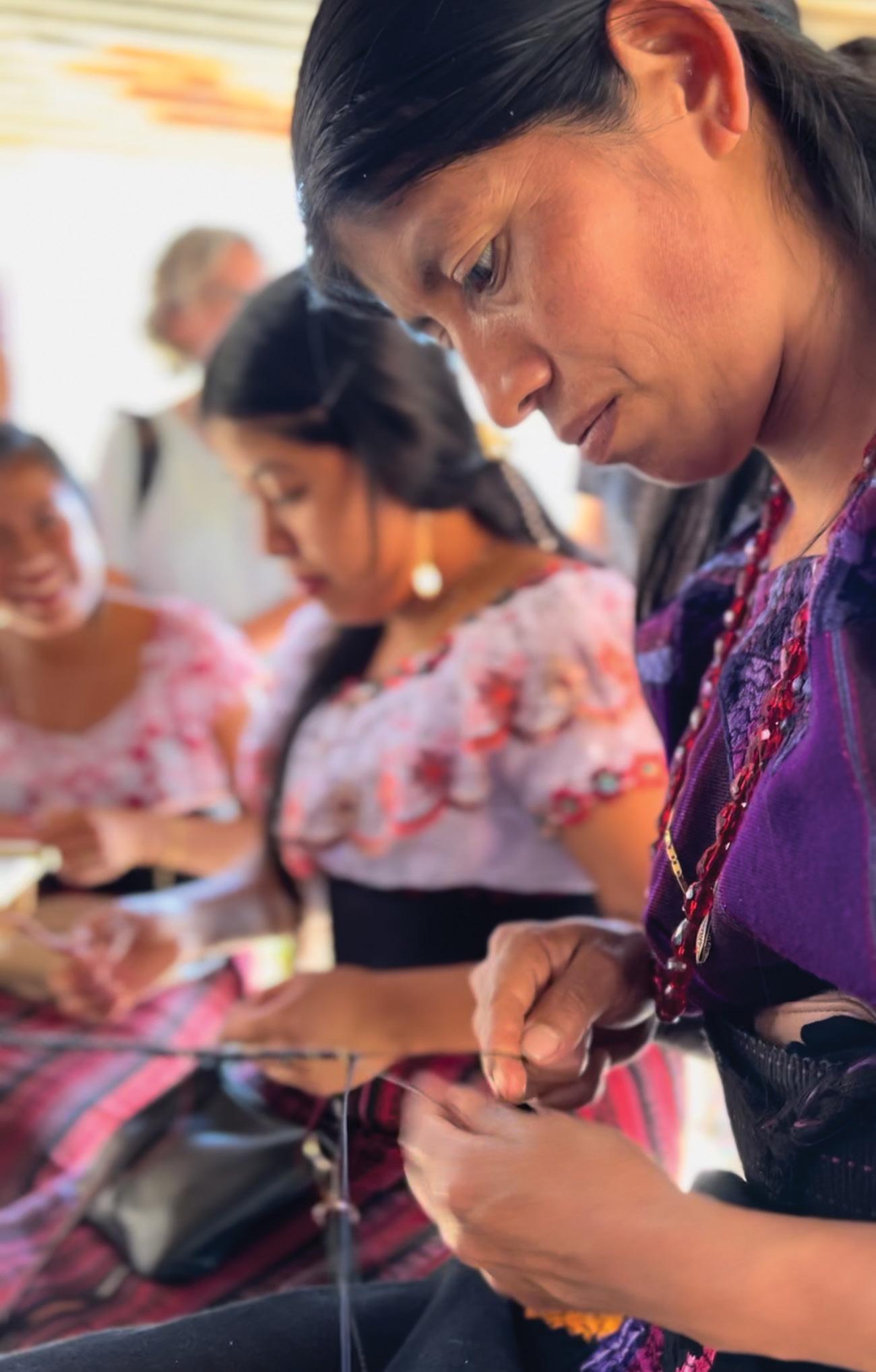
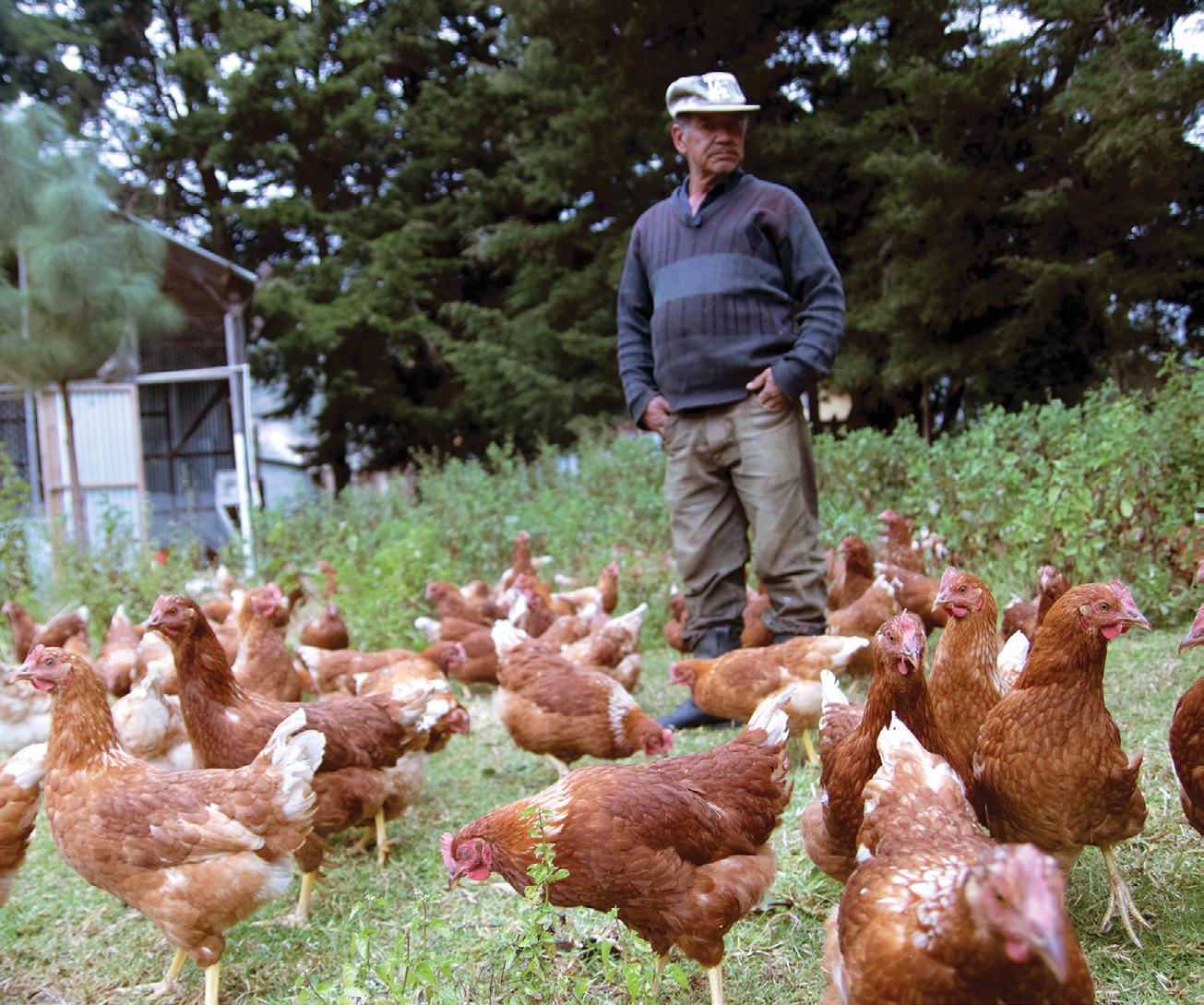 Above: Women in the Tuzununâ group work at handicrafts.
Below: A Wakami staffer with hens ready for purchase by community members.
Above: Donã Reina leads a Wakami women's group in Tzununâ, Guatemala.
Above: Women in the Tuzununâ group work at handicrafts.
Below: A Wakami staffer with hens ready for purchase by community members.
Above: Donã Reina leads a Wakami women's group in Tzununâ, Guatemala.
In another example of happiness not being related to wealth, Tanzania was recently named the third happiest country in the world, according to a survey of 500,000 people for the Global Mind Project’s fourth annual report.
Ranked by GDP (gross domestic product), Tanzania is 76th of major economies. Sri Lanka, ranked 77th in terms of GDP, was the second happiest, and the Dominican Republic, ranked 65 in terms of GDP, was named the world’s happiest.
The report’s authors noted that several other African and Latin American nations topped the happiness rankings, while wealthier countries such as the United Kingdom and Australia were near the bottom. “This pattern suggests that greater wealth and economic development do not necessarily lead to greater mental well-being.”
“In 2023, data from the Global Mind Project identified key factors that explain these patterns, such as getting a smartphone at a young age, frequently eating ultra-processed food, and a fraying of friendships and family relationships, that are typically more prevalent in Internet-enabled populations of wealthier countries.” .
Toxic workplaces have cost US employers more than $223 billion over the past five years, Fast Company magazine reports.
A study by the Society for Human Resource Management found toxic workplace cultures drove 20 percent of US workers out of their jobs since 2019.
That turnover costs organizations a collective $44.6 billion a year.
In the report, toxic workplaces were described as environments where people dread going to work,
don’t feel they can be honest with their manager, or may witness or experience sexual harassment or age discrimination.
Such cultures have astronomical productivity costs as well, with workers claiming $86 billion in sick days.
The research notes a “critical skills gap at the management level,” plus a failure to communicate openly and transparently.
The Walrus magazine recently published a similar story. That article cites an International Labor Organization survey indicating that just over half of people who experience workplace violence or harassment report what happened. .
Could the great American chocolate
bar come from a petri dish near you?
The Atlantic magazine says a company in Davis, California, is working to cook up your guilty pleasure from the individual cells of cacao plants.
Disease, deforestation, unpredictable yields, and issues around child labor could lead to a world where chocolate starts its life in a petri dish, California Cultured suggests.
Cultivated chocolate won’t be available for you to buy until late this decade.
Other startups are working to make fake chocolate from ingredients such as oat spelts. QOA wants to sell its cocoa-like ingredient to candy makers for 20 percent less than the real thing, with a goal being part of every M&M you sneak. .

Pennsylvania man comes from a long line of entrepreneurs but follows a new path.
By Nathan GoodMany businesses in North America are family businesses.
Opportunities grow as a business passes from generation to generation. But challenges arise as well. Few people know this dynamic as well as Nate Clemmer. If he had chosen to, Clemmer would have been the sixth generation in a family business. Growing up in Souderton, Pennsylvania, 30 minutes north of Philadelphia, Clemmer lived several blocks from the business his dad and extended family ran.
It was a mill bought by Clemmer’s great-great-great grandfather, Christian Moyer. Christian bought the mill in 1869 and ran it with his brothers. In fact, it was first called “Moyer and Brothers” before being renamed through the years to “Moyer and Son.” In the family, they called it “The Mill.”
The business was a real part of the family. Much of what Clemmer learned about running a business came from dinner table conversations. Every Sunday, the extended family got together for a meal. They weren’t working, but stories and conversations often centered around The Mill.
Being part of the family did not automatically make someone part of the business, though. When a child turned 16, they were assigned a liaison from within the family business.
They met once per year to discuss their interests.
There were certain rules for returning to the family business. One of the primary rules was that a candidate needed to have at least three years of meaningful work outside the business.
With this system, the business continued to change hands for five generations. However, there were never more than five or six partners at one time. The system whittled down possible owners to those most interested.
Another large part of Clemmer’s family and the business he came from is the connection with the church. Jacob Moyer, the thirdgeneration president of Moyer and Son, was also the first pastor to be called by lot at Souderton Mennonite Church in 1914.
This is a practice in some Anabaptist churches when choosing a pastor. Several young men were selected by the congregation.
Ultimately, Jacob was chosen
by chance from that group. He was not paid for his pastoral responsibilities.
At the time, the rest of the family needed to pick up the extra work in the business. The mission of the business became focused on financially supporting the ministry.
This continued through the generations. In the fifth generation, two of Clemmer’s uncles chose to become pastors themselves. For the 110 years that Souderton Mennonite Church has had its own pastor, 84 of those years, the pastor was a descendent of Moyer and Son. For those in the business who are not serving as pastors, supporting mission and ministry became very important to them.
Reflecting on how culture is passed on through a family business, Clemmer said: “When you grow up around a dinner table and [your grandfather], and dad, and various uncles have all shared stories about things that have happened and how they treated people, those things flush through... No one is going to do a better job preserving how we want people to be treated than our own kids.”
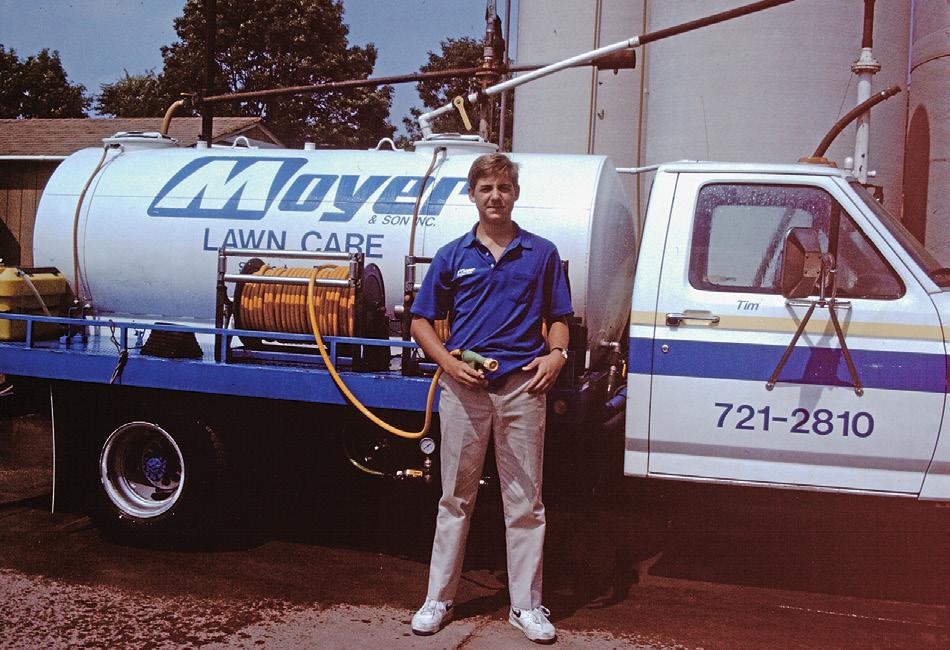
Clemmer always assumed he would return to The Mill. However, as he grew older, he became less certain. Ultimately, his dad chose to sell his shares in the company, and Clemmer did not purchase them. As part of his buyout
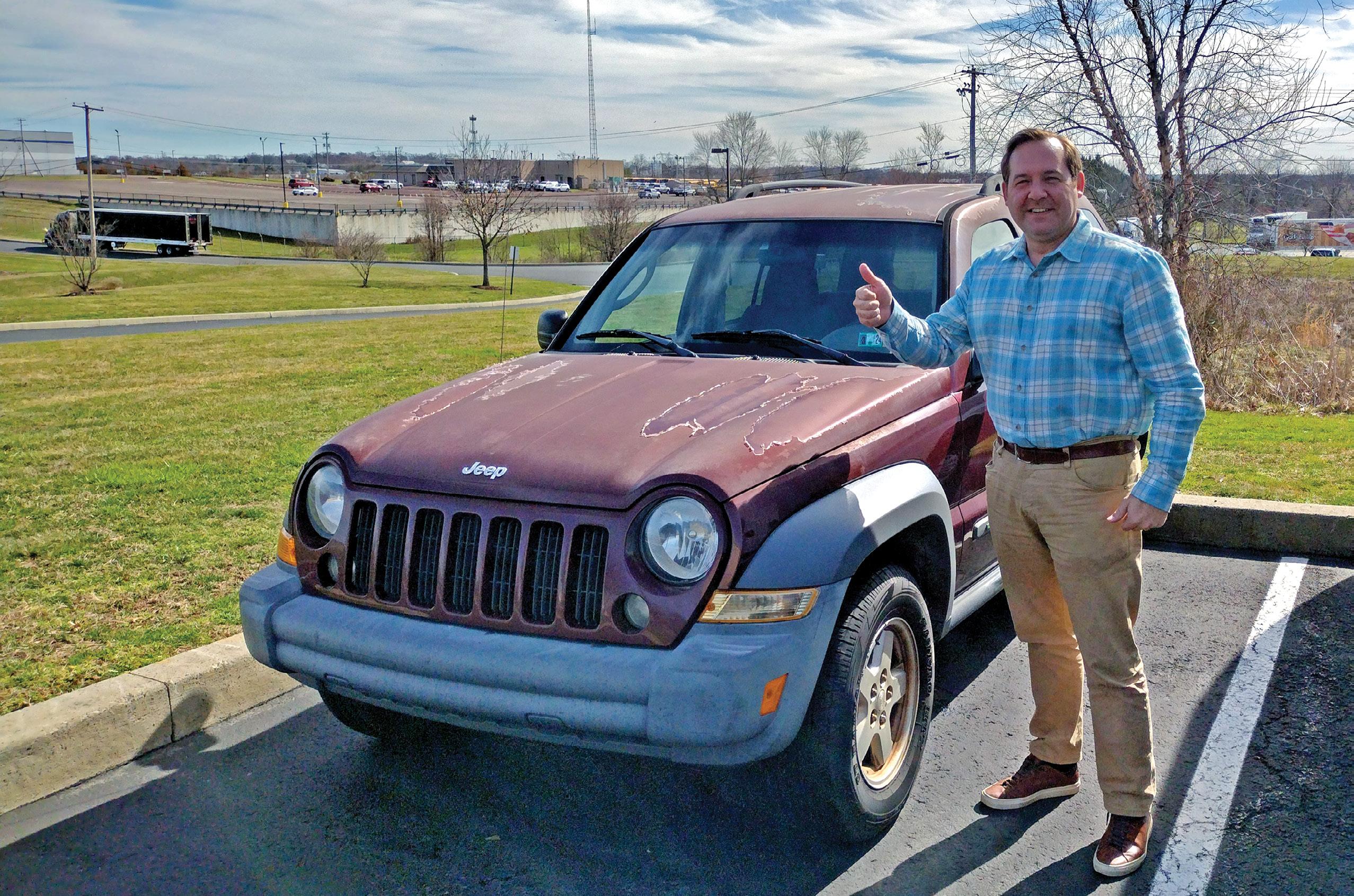
plan, Clemmer’s dad created a new company from the fertilizer division, which became SynaTek.
No longer part of Moyer and Son, Clemmer returned to help his dad develop this new business. “In many ways, it feels like a continuation of 175 years in the family business, but in other ways, it’s a new tree,” he said.
Grounded in generations of tradition, Clemmer and his father have focused the business on innovation. Clemmer is not afraid to try new things; in fact, that is where he thrives. SynaTek has become the parent of several innovative brands.
One of these, called Branch Creek, is creating environmentally friendly solutions at an affordable price. One example is a chloridefree ice-melting product.
It won the Innovation of the
Year Award from the International Sanitary Supply Association.
Used by the Denver Broncos of the National Football League and BASF, the world’s largest chemical company, it is an innovative solution with a large reach.
Despite this innovation and success, Clemmer is hesitant to talk about his accomplishments. During an interview, he said at least half a dozen times that one of his biggest fears in life is becoming a jerk.
Clemmer sees pride as a slippery slope. He truly prizes character over accomplishments.
In many ways, this is part of the culture that Clemmer received from his family. “As a kid growing up, we knew a business needs to make money,” he said.
“Profit is not a bad word. But profit is not why we exist. ... My motivation ... is to try to generate as
much money as possible to be able to plow back into initiatives that I think have an impact in bringing the kingdom of Heaven to Earth.”
This impacts not only what he does with his money but also how he runs day-to-day operations. Influenced by stories from the life of Jesus, Clemmer prioritizes people.
He focuses on character and putting others first. This may come from family anecdotes, like “we pay ourselves last,” that modeled this approach to business.
Turning ideas into action is also important to him. “We highly value people in more ways than just spoken words and cool sayings that hang on a wall. What does it really mean for people to be your number one asset? For our company, we’ve been deliberate (about) creating an environment where all the
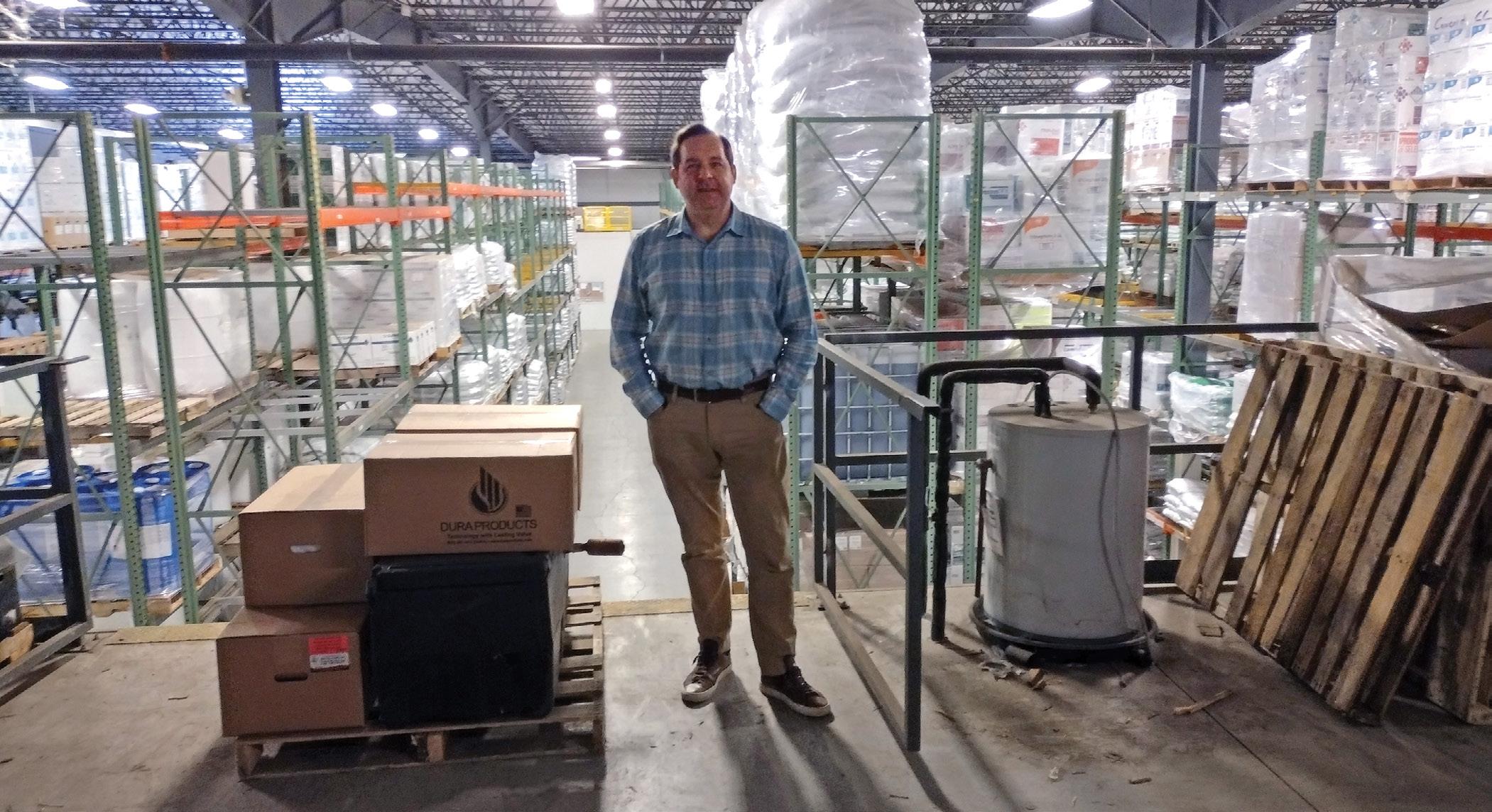
Nate Clemmer in the warehouse of the family fertilizer business. members of our team are treated as our number one asset.”
He intentionally uses communal language. Employing over fifty people, he refers to SynaTek as “our company” and wants his employees to feel like they work with him rather than for him.
This also impacts his personal life and practices. In an effort to stay centered on Christ and resist pride, Clemmer focuses on giving over getting goals.
One practice for developing character was driving a nearly twenty-year-old, worn-out car as a roadblock to pride. “Pride is something we see in the Bible; it is really clear that it leads to destruction. I just recently got a new car. I tried so hard to keep the old one going. But it wouldn’t start. I could get it to start by turning the key so hard that it felt like it would break in the ignition. That worked for a month or two. And then one time, I went to turn it off and pulled the key out, but the car was still running.”
He was out shopping. He let the car run out of gas in the parking lot and finally bought a new one. “You can have the best day. You can close a deal and make a lot of money. But you get in a
car that’s worth $400, it’s like, you come back to earth real quick.”
Clemmer also has intentional practices around prayer. Every morning, he prays through his day. He wants to commit each thing to God but also will change his plans based on what he senses God wants.
He has been resistant to strategic planning in his businesses. It seems to him that trusting God and having a five-
“Profit is not a bad word. But profit is not why we exist. ... My motivation ... is to try to generate as much money as possible to be able to plow back into initiatives that I think have an impact in bringing the kingdom of Heaven to Earth.” — Nate Clemmer
year plan contradict each other. As his businesses have grown, he has realized the need for clear communication with his team.
His strategic planning doesn’t happen in front of a whiteboard. He gets away for a day of prayer. This time of prayer turns into a three-year strategic action plan, which he continues to update through more times of prayer.
This approach to life and business has led to success. However, Clemmer encourages people not to copy what he has done. If anything, he would encourage people to learn from his practices.
For him, the core of life and business is staying humble, connected to the Christian community, and grounded in Christ.
Much of this thinking comes from the culture he was handed from generations of Christians perfecting the art of doing business in order to support ministry.
What Clemmer does intuitively is embodied Anabaptist theology. But he isn’t focused on the preservation of the Mennonite Church.
For him, what is most important is following Jesus in faithfully bringing the kingdom of God on Earth as it is in Heaven. .
Ben Sprunger was MEDA’s president from 1994 to 2002.
The reflection below is from his upcoming memoir, reprinted with permission. The accompanying artwork is a Ray Dirks painting.
I discovered MEDA’s impact through an African woman who had the brightest eyes, a wonderful face with deep character creases and a missing tooth. She was proud of her work and her new status as a chicken grower.
“How has your life changed since the MEDA loans?” I inquired. With a big smile she said, “The roof doesn’t leak. The house is clean and safe with a new concrete floor and a new door.”
“In what other ways has your life changed?” I asked. “The children don’t get as sick as often. With more income we eat a wider range of foods and our diet is healthier. She said with pride.”
Not wanting to stop I persisted. “What else has changed?” “Her eyes glistened as she told me she could now pay for school uniforms, books and tuition so her children could attend school.”
I dared to ask one more time: “What other changes have you experienced?” As she stood straight and tall, with a big smile and wrinkles around the eyes she said, “I can now contribute to our church.”
I realized she was experiencing opportunity and improved well-being.
Exactly what each of us want — a safe and secure home; food so our family can be healthy; school so our children will have better opportunities; and the ability to contribute to our church and community.
What else can be said? — Ben Sprunger
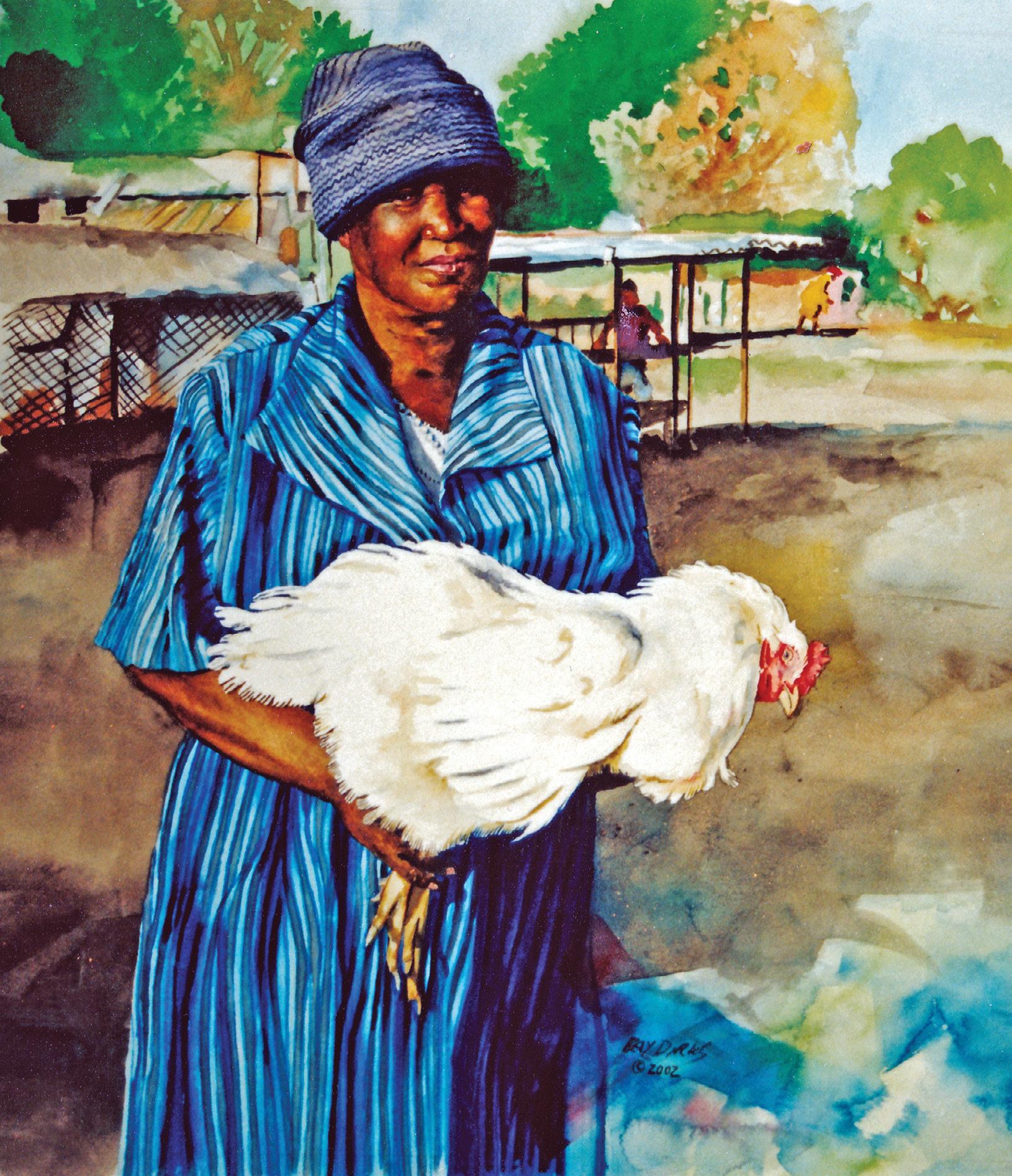
For the needy shall not always be forgotten, and the hope of the poor shall not perish. Psalm
9:18 NKJV
The Prodigal Gospel: Getting Lost and Found Again in the Good News by Jonny Morrison (Herald Press, 2024. 208 pages. $19.99 US)
For Morrison, the prodigal son story is the Christian gospel in a nutshell. The Father in the parable shows us what God and Jesus are like.
The author views the parable as a metaphor for our real relationship with God, self, and others.
The issue with the prodigal son isn’t violations of law, but rather violations of relationship, he suggests. “We are far more obsessed with judgment than our Father is.”
Yet God “consents to our decisions and allows us to pursue our own ends.”
God works with us in participatory and consensual ways because God cares about relationships and reunions, he argues.
“The Prodigal Gospel” is a helpful interpretation for anyone who has been disillusioned by depictions of God as a vengeful judge. The author prefers the image of God as a father or physician.
The book offers two distinct views of the gospel: legal and restorative, arguing persuasively in favor of the latter. “There is nothing that can separate us from God’s love,” he writes.
Morrison explains the concept of sin as missing the mark. In the restorative gospel, that means turning away from a relationship with God.
“The gospel is like a party where strangers are welcome, honored, and loved.”
He admits that he understands and sometimes has shared the feelings of people who leave the church.
But he believes that “we can make the gospel real, here and now, but stubbornly refusing to give up on one another.”
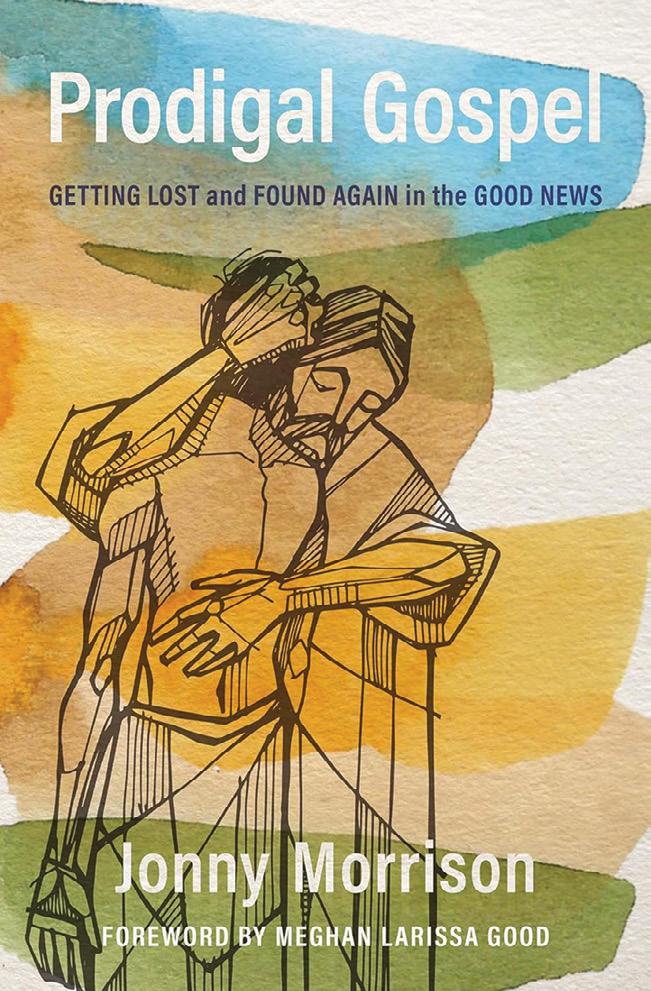
This book is well worth reading and discussing. — MS
A Non-Anxious Life. Experiencing the peace of God’s presence by Alan Fadling. (IVP, 2024. 214 pages, $24 US)
Fadling, a spiritual director, admits to being a master of anxiety for much of his adult life.
Anxiety is a fuel that burns dirty, fouling our health, relationships, and the quality of our work, he says. This dirty fuel became an unseen epidemic during the COVID-19 pandemic.
people can find peace by drawing closer to Jesus. He views peace as an operating system that we can learn to make the “underlying framework of our lives.”
He does not so much recommend trying to get rid of anxiety as he views it as misdirected energy that can be recovered and redirected.
For the author, and likely many of us, anxiety is poorly dealt with through numbing, escaping, and avoiding. A healthier approach to life involves learning “a certain pace of soul, pace of interaction, pace of engagement.”
God’s gracious provision is a gift, not a paycheck, he notes. Peace can be chosen by engaging God about our concerns through praying and listening.
“Deep inner peace is a fruit grown from often following Jesus to a lonely place to give God the gift of my attention, to seek communion, to pray.”

However, he believes that
An orientation towards service instead of self can quiet anxieties, he has found.
Fadling believes God wants peace to be embodied in people so that they might live peace in their worlds, a peace that is not situationally dependent.
This book provides many important words and much to reflect upon for a time such as this. — MS
The Servant Lawyer: Facing the Challenges of Christian Faith in Everyday Law Practice by Robert F. Cochran, Jr. (IVP Academic, 2024 240 pages, $28 US)
In Jesus’ day, lawyers were adjudicators of Mosaic law. In Luke 10, Jesus is confronted by a lawyer who asks, “How do I gain eternal life?”
Jesus says, “Love God with all your heart, soul, strength, and mind, and love your neighbor as yourself.”
“But” asks the lawyer, “who exactly is my neighbor?” Jesus then launches into the well-known parable about the Good Samaritan. It is from truths in this and other biblical examples that Robert F. Cochran, Jr. gleans the wisdom he shares in his book, which “explore[s] the connection between
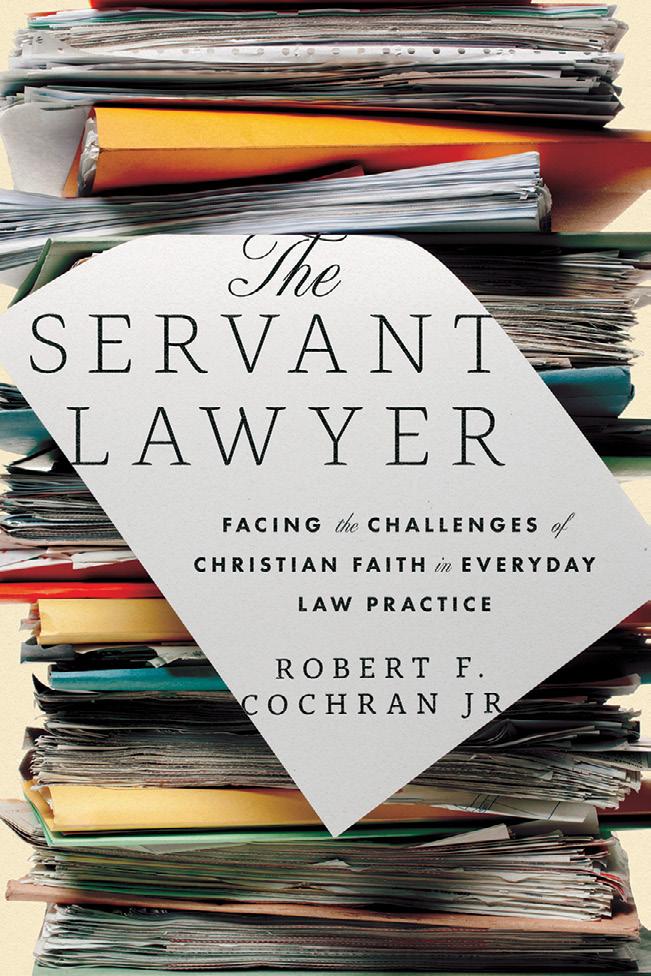
the Christian faith and what ordinary lawyers do” in every area they serve — family law, defenders, prosecutors, judges, etc. While targeted primarily to “lawyers, law
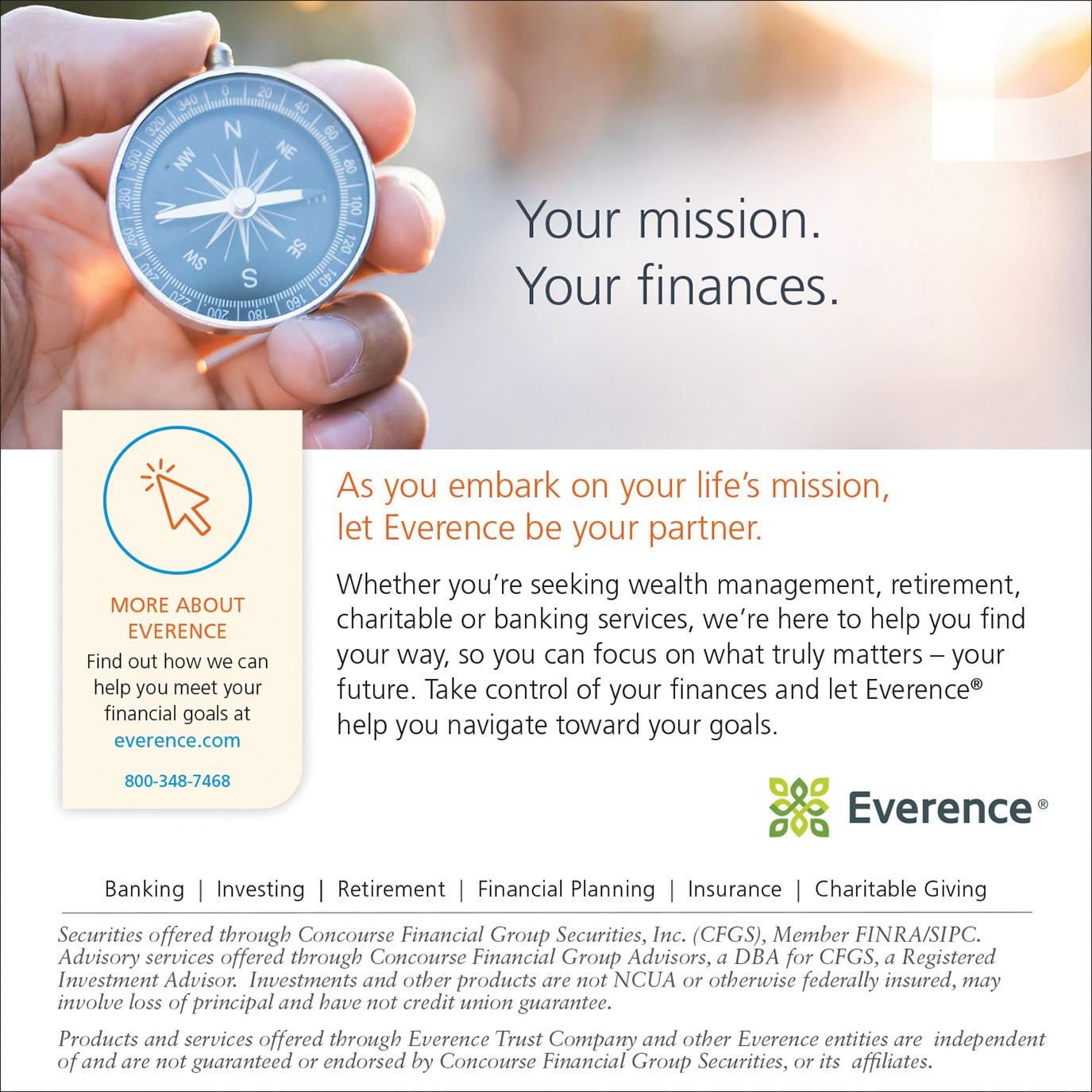
students, and prelaw students,” the truths shared have a broader practical application in business and personal life.
The two key ideas he expands on are what it means to be a servant and the importance of viewing all others as God’s image bearers.
Cochran reminds readers that both their clients and those they encounter in the justice system are there by God’s will.
“The biblical message,” he writes, “is that all humans should be treasured.”
This means exhibiting the agape love Jesus taught and lived. Cochran says agape love “seeks the best for people.” It enables us, in the words of C.S. Lewis, “to love what is naturally unlovable — lepers, criminals, enemies” and others.
The book is full of examples to support his claims. Cochran encourages lawyers to faithfully live out their Christian commitment in the face of multiple challenges, including when the client they are called to defend seems guilty.
This requires surrounding oneself with the right friends as well as nurturing good spiritual health.
Cochran confidently asserts, “Lawyers can have a significant social and personal impact for good, and thereby love their neighbor, and ultimately, God.”
— Stephen R. Clark
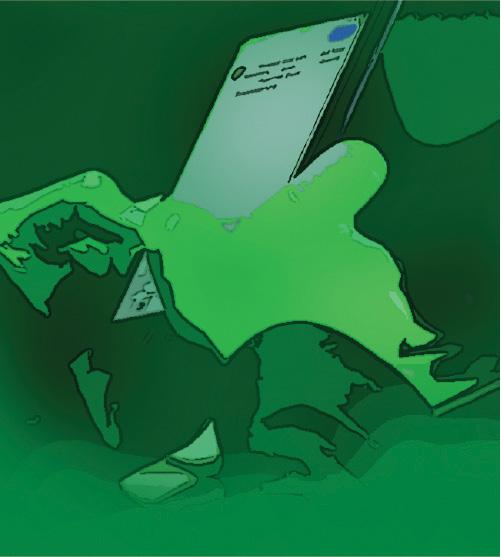
Would you like to comment on anything in this magazine, or on any other matters relating to business and faith? Send your thoughts to mstrathdee@meda.org
